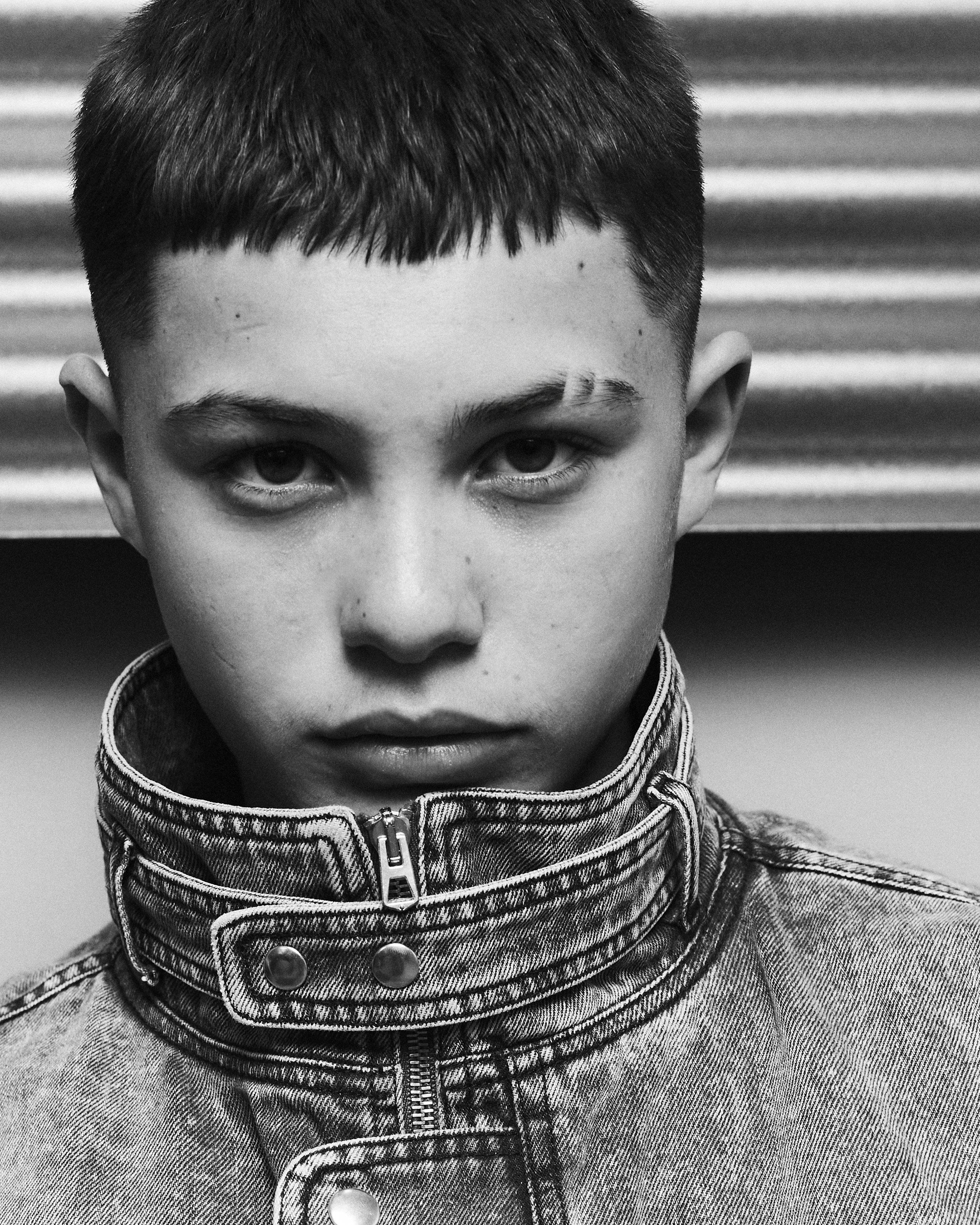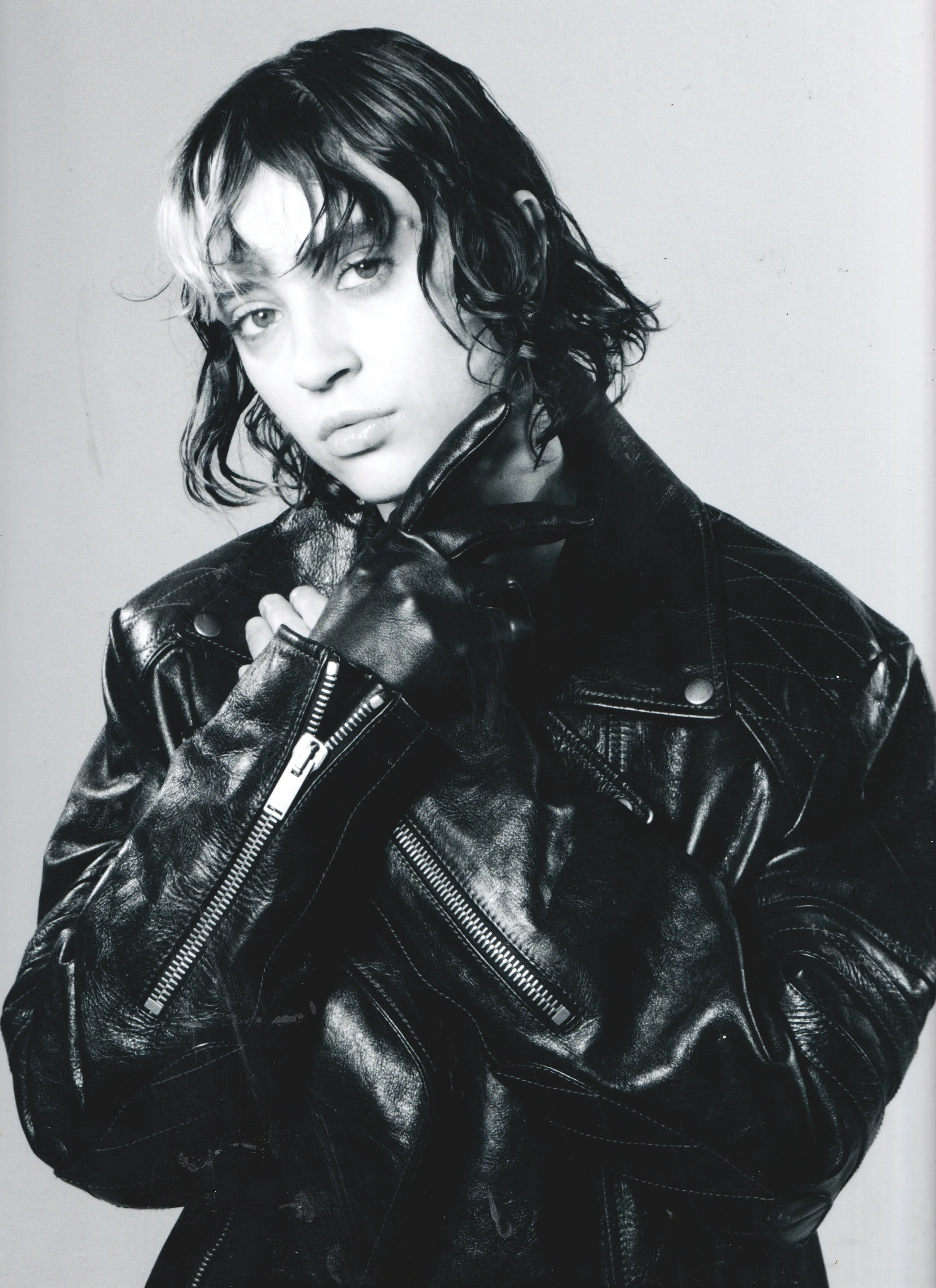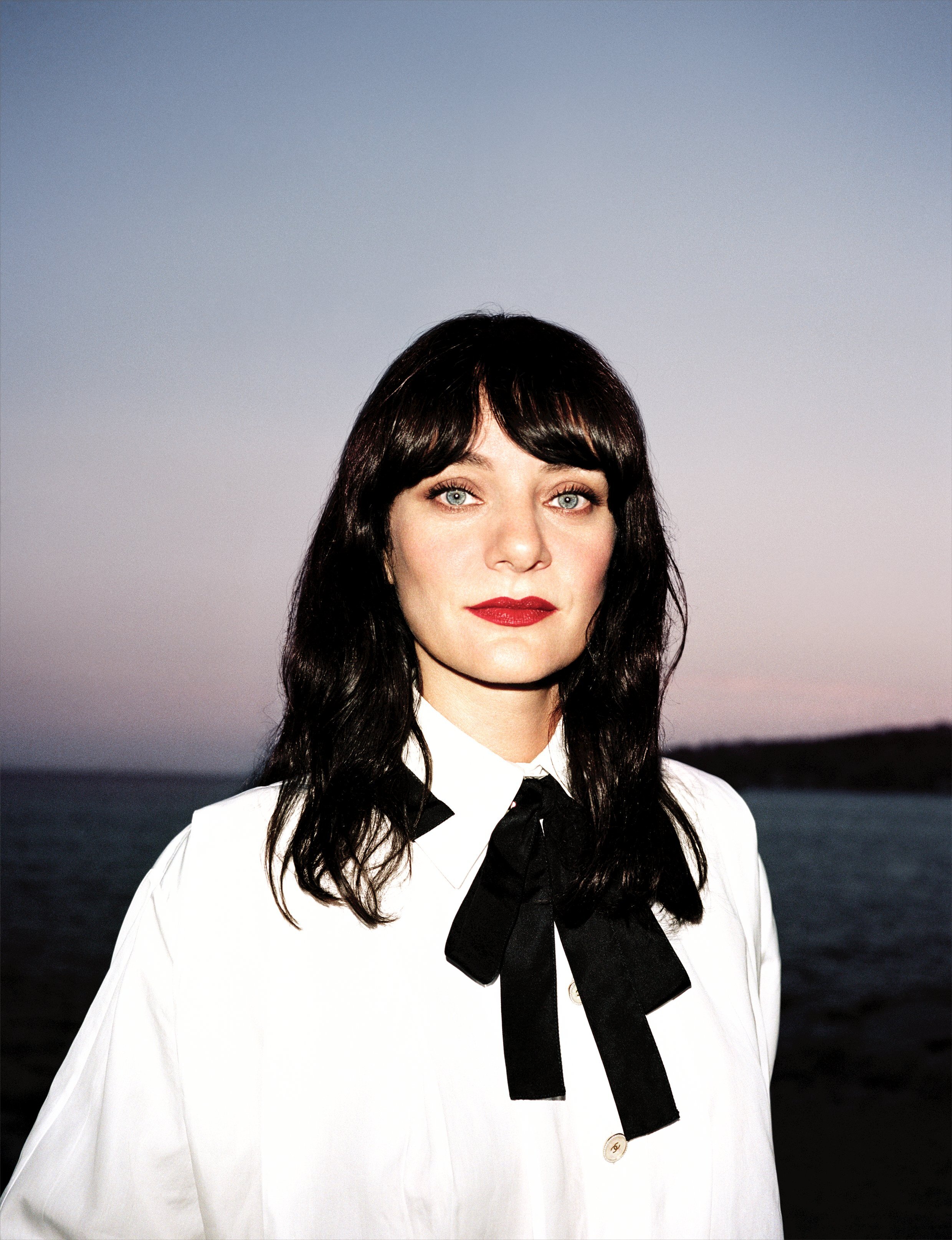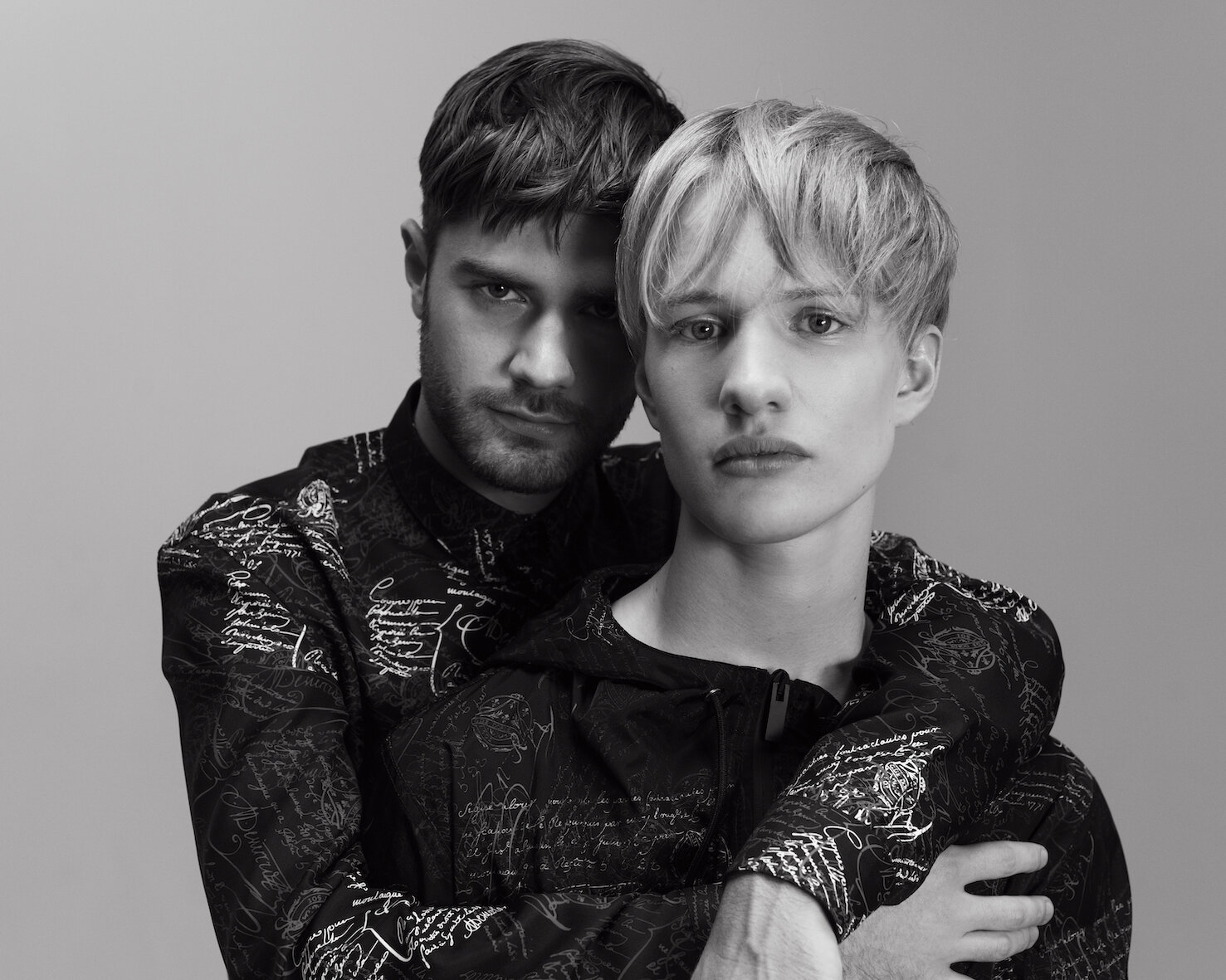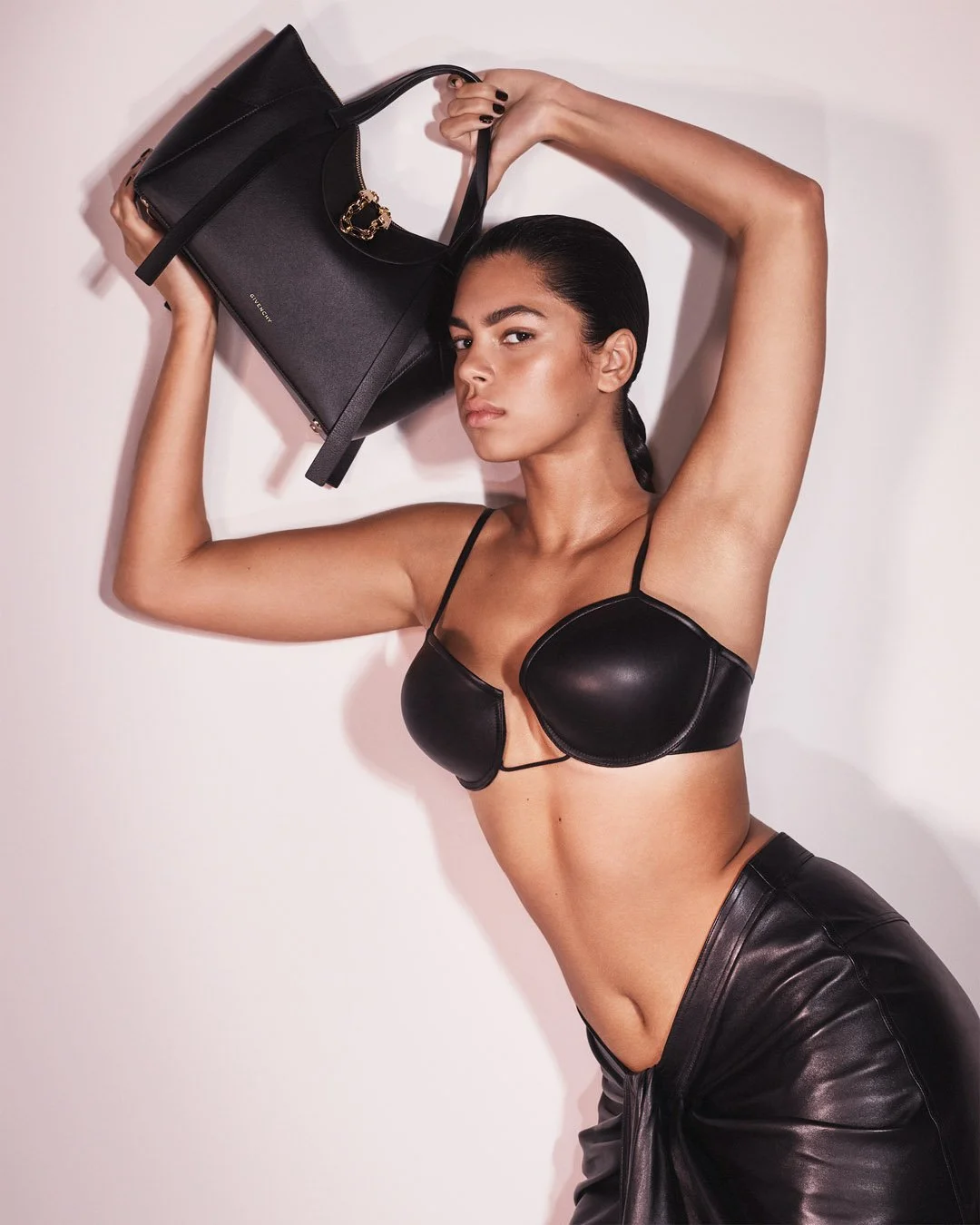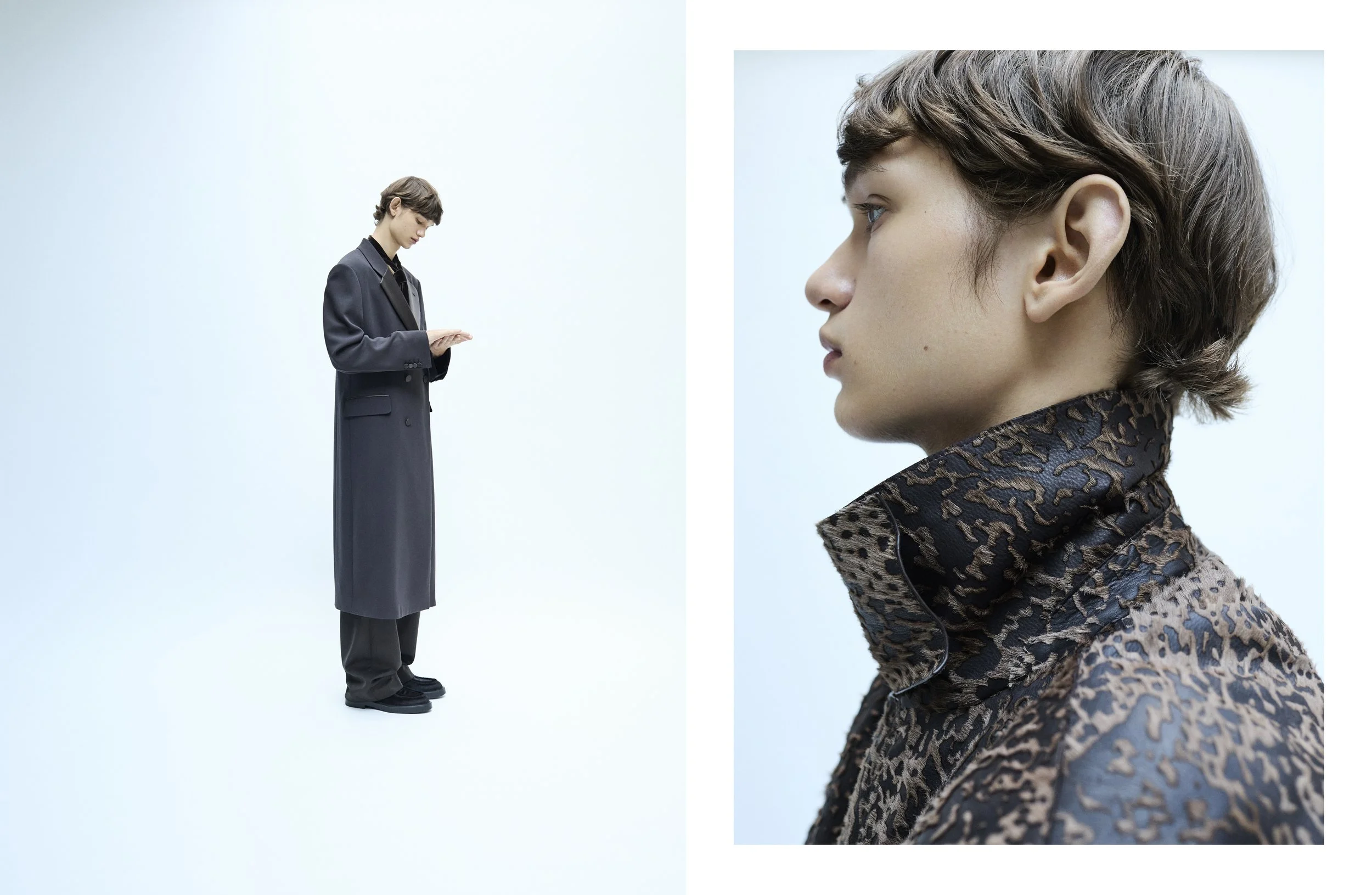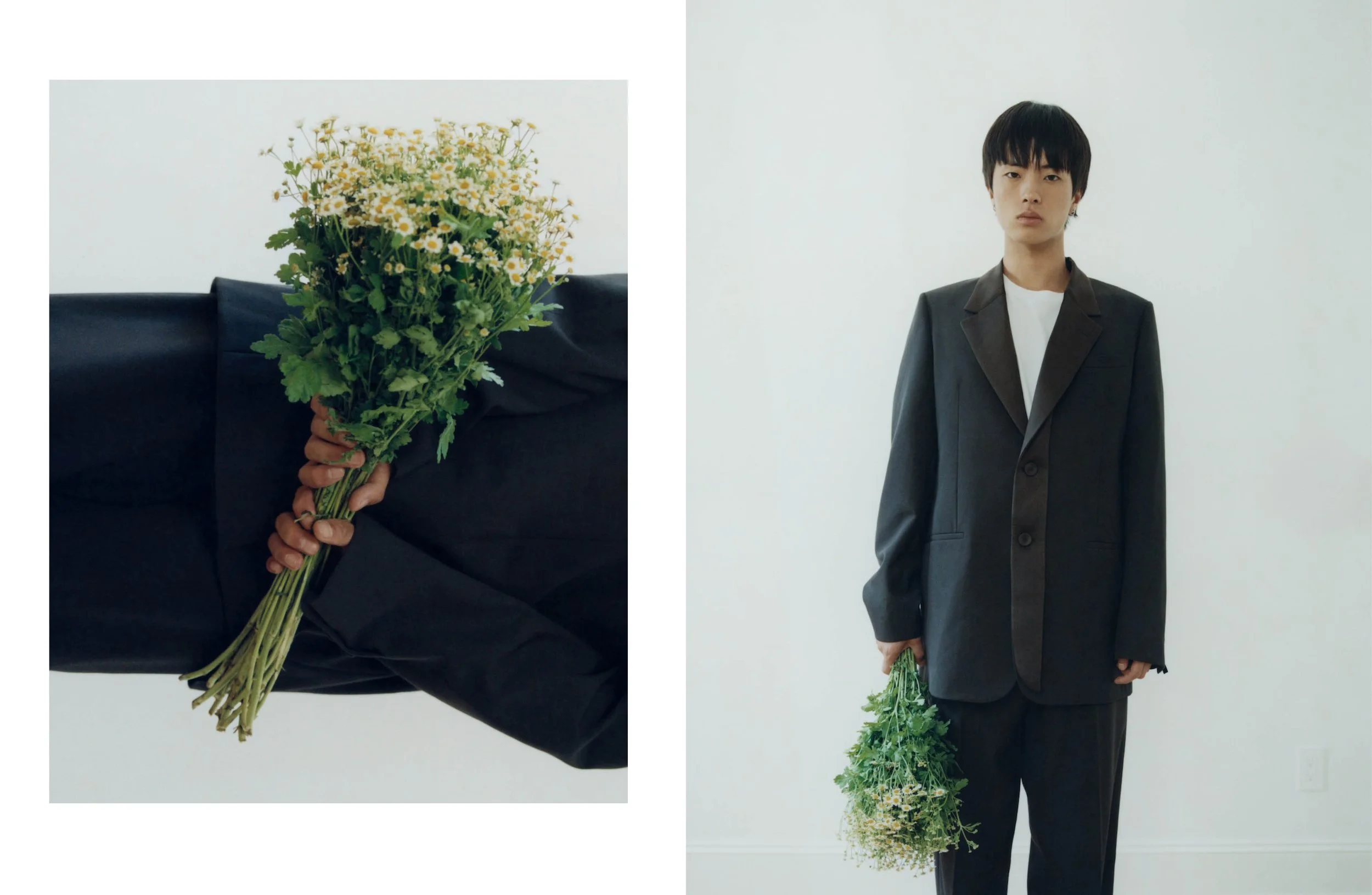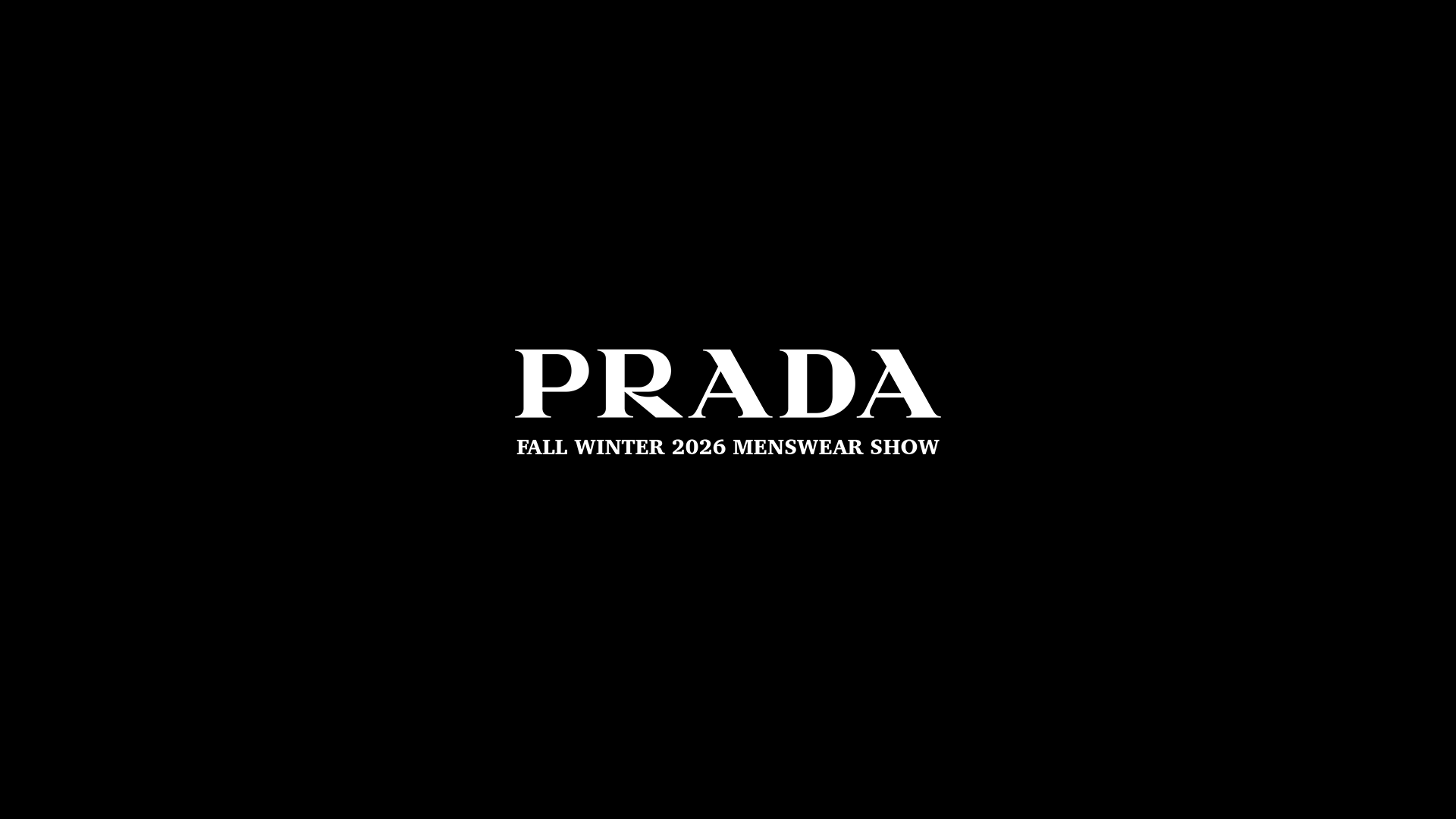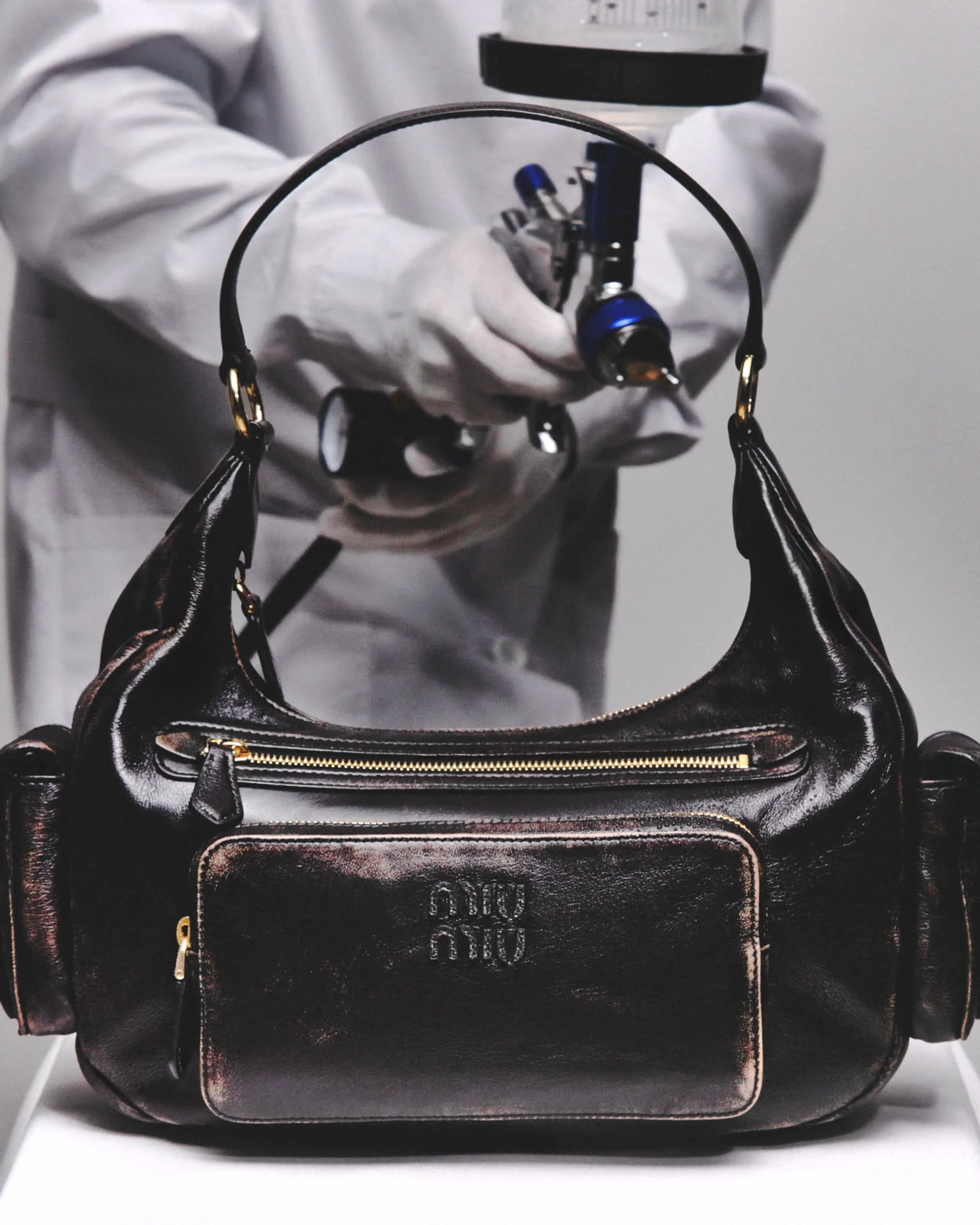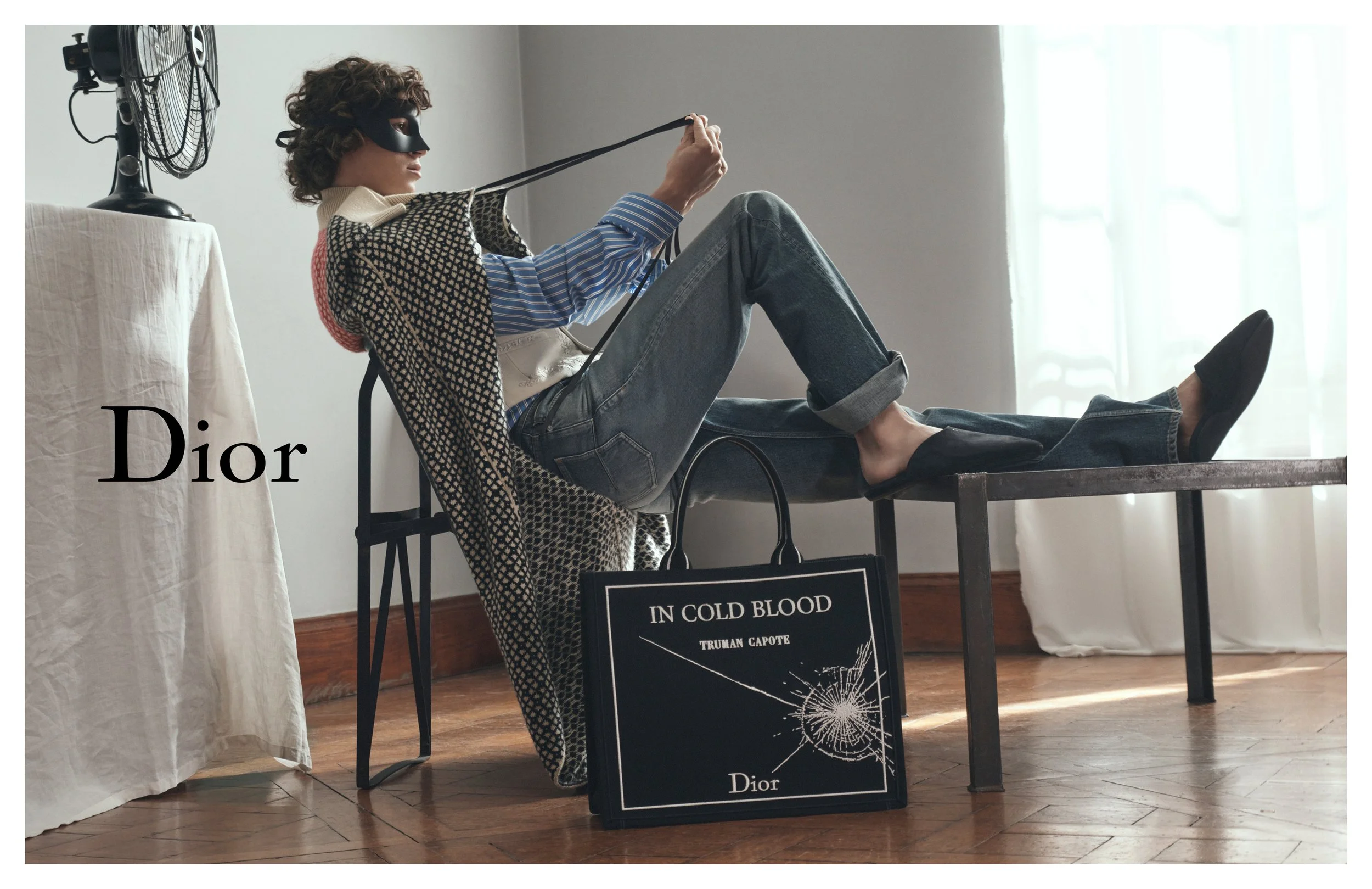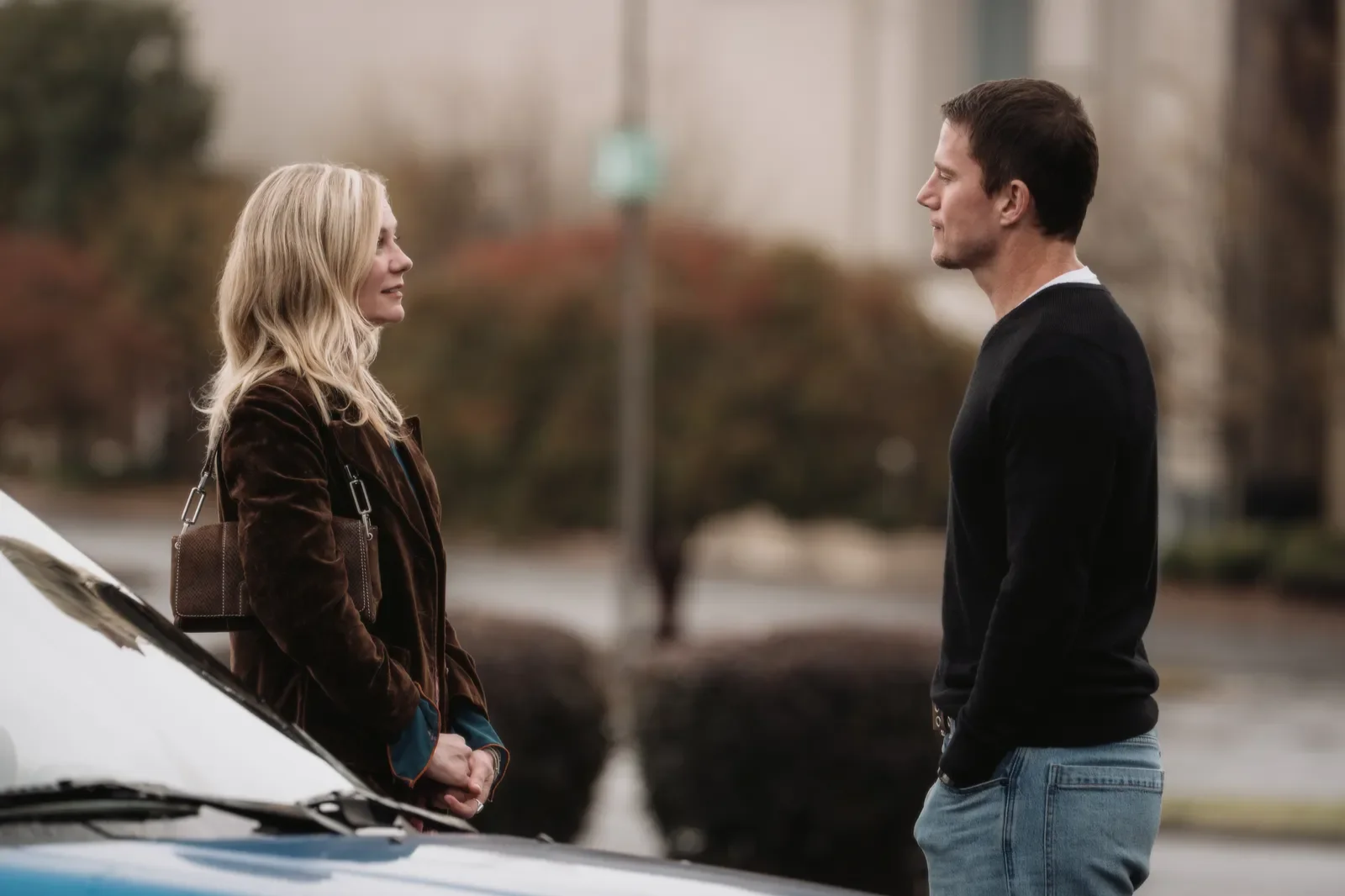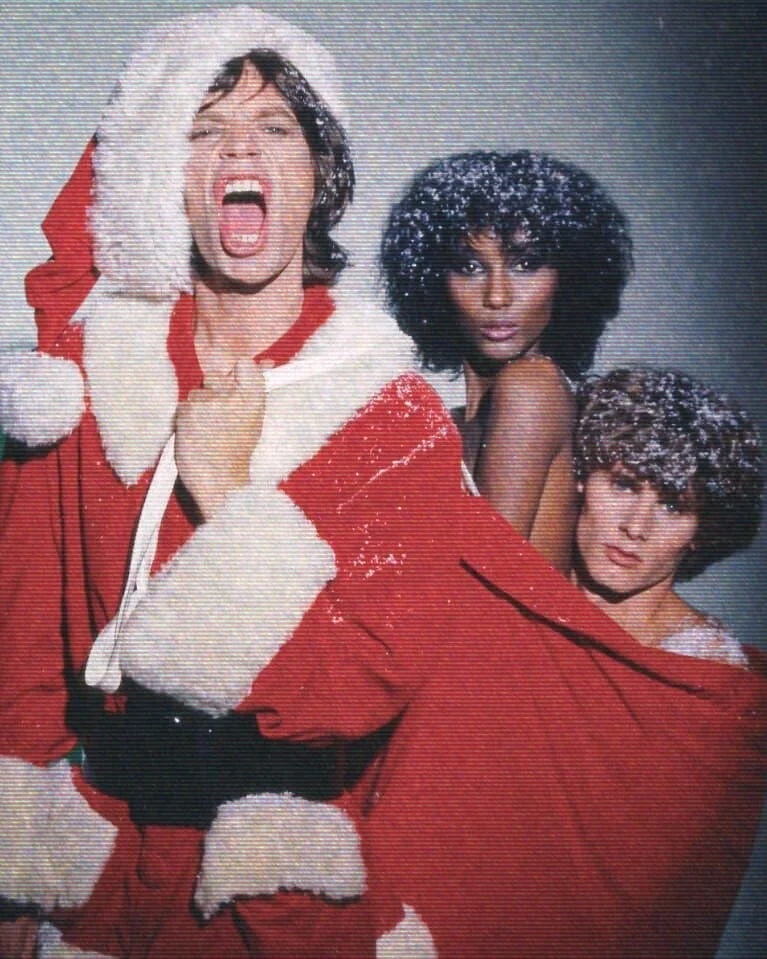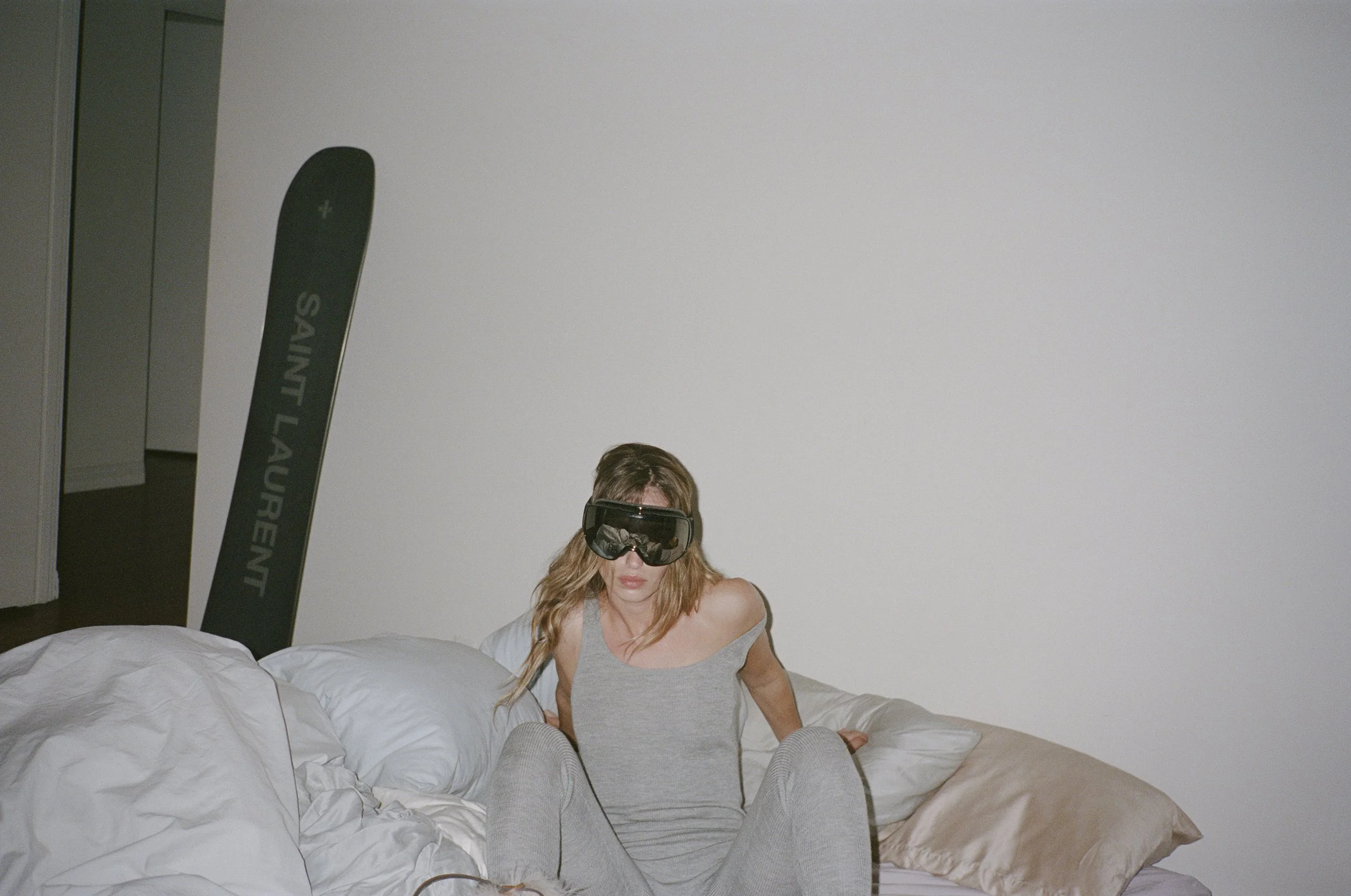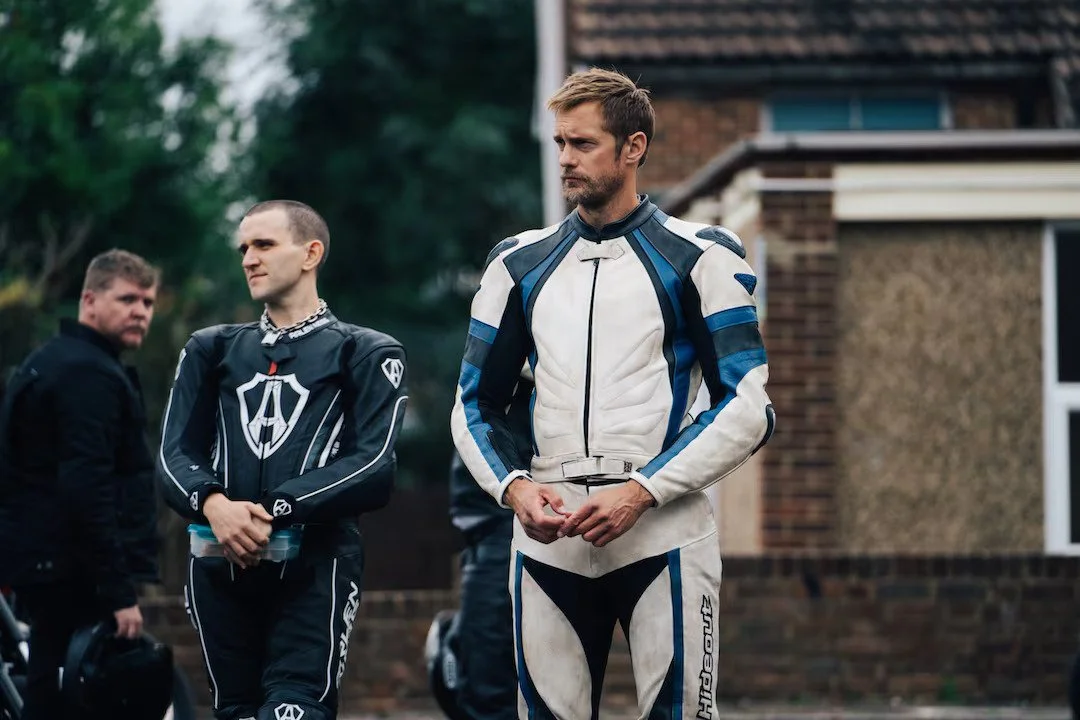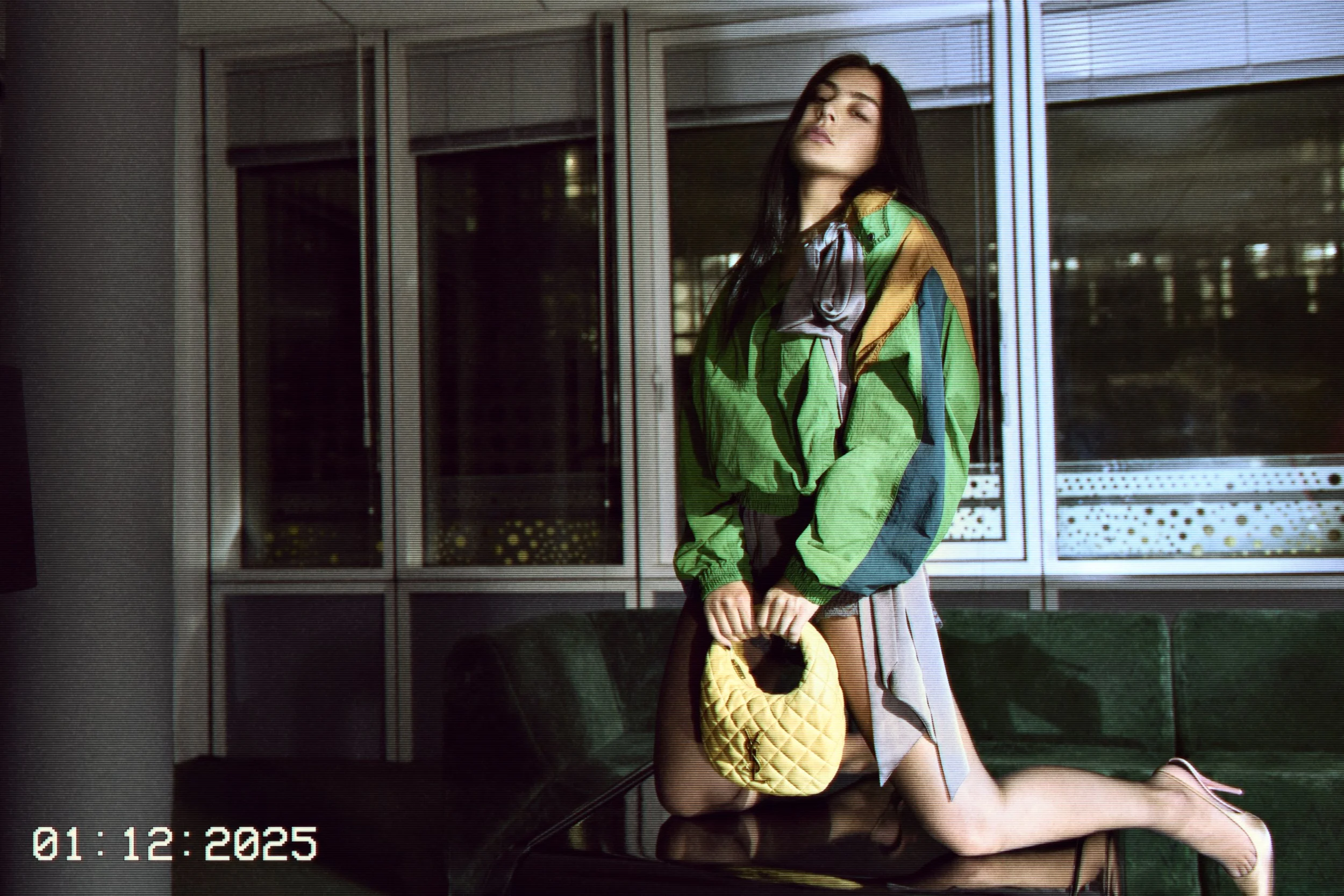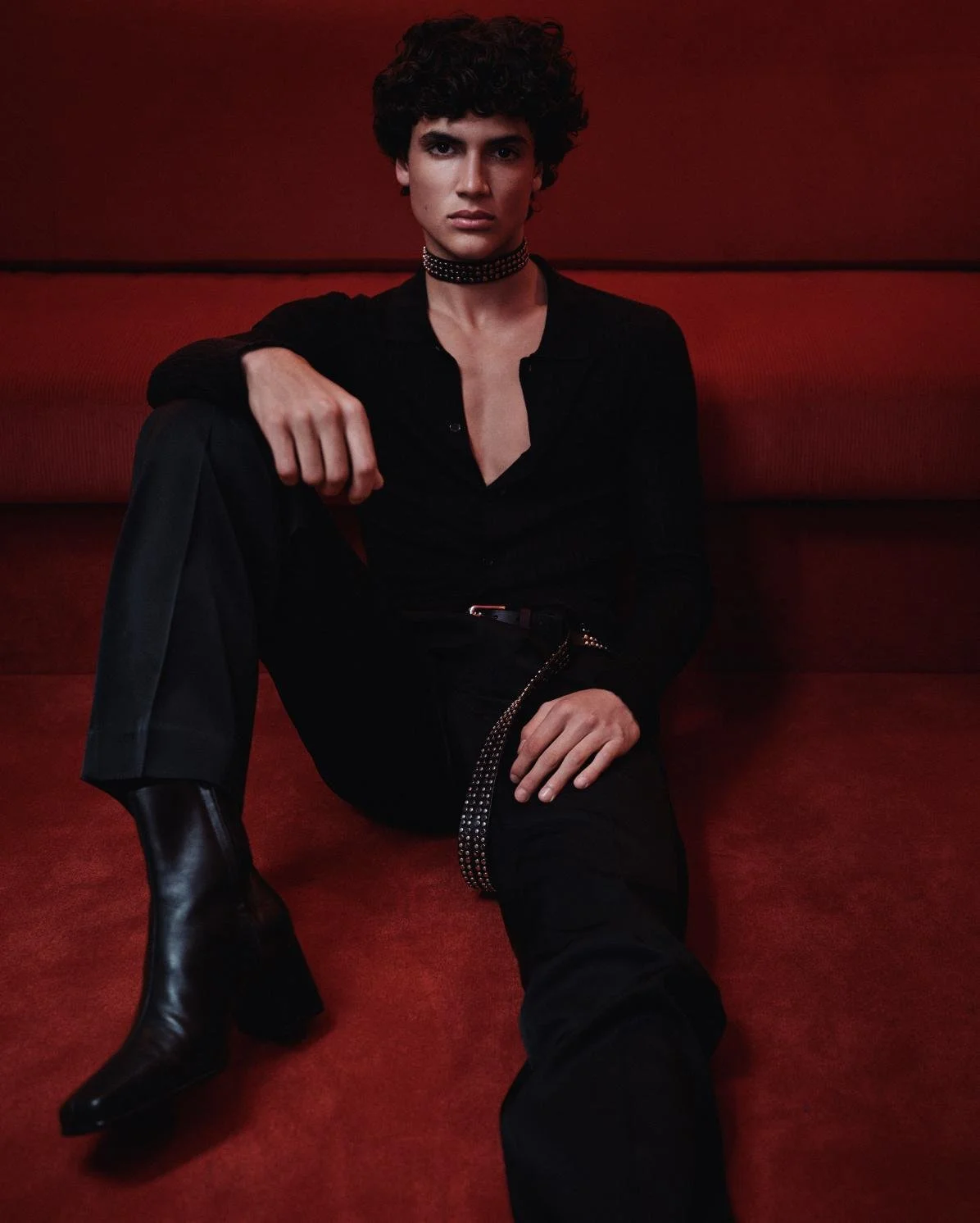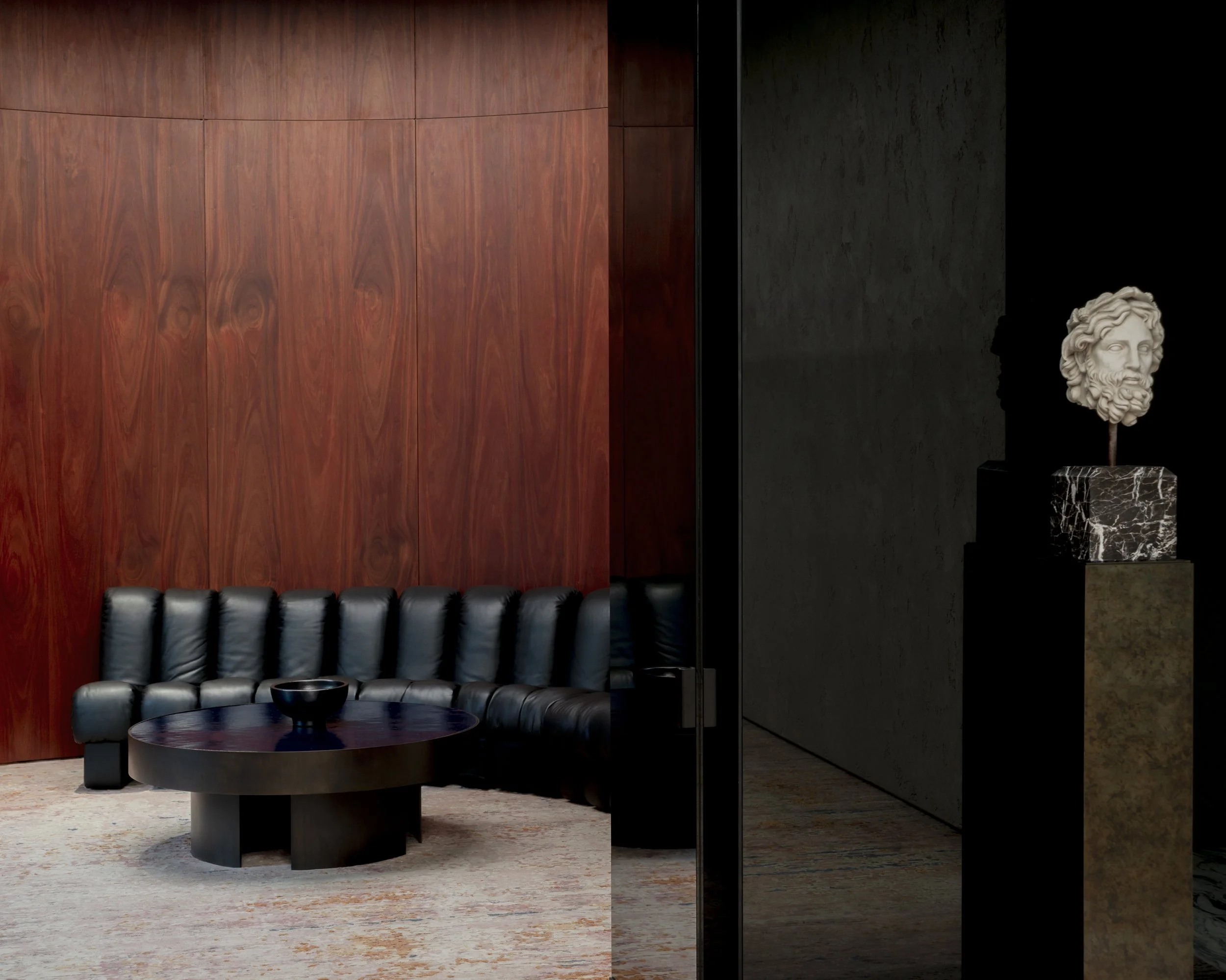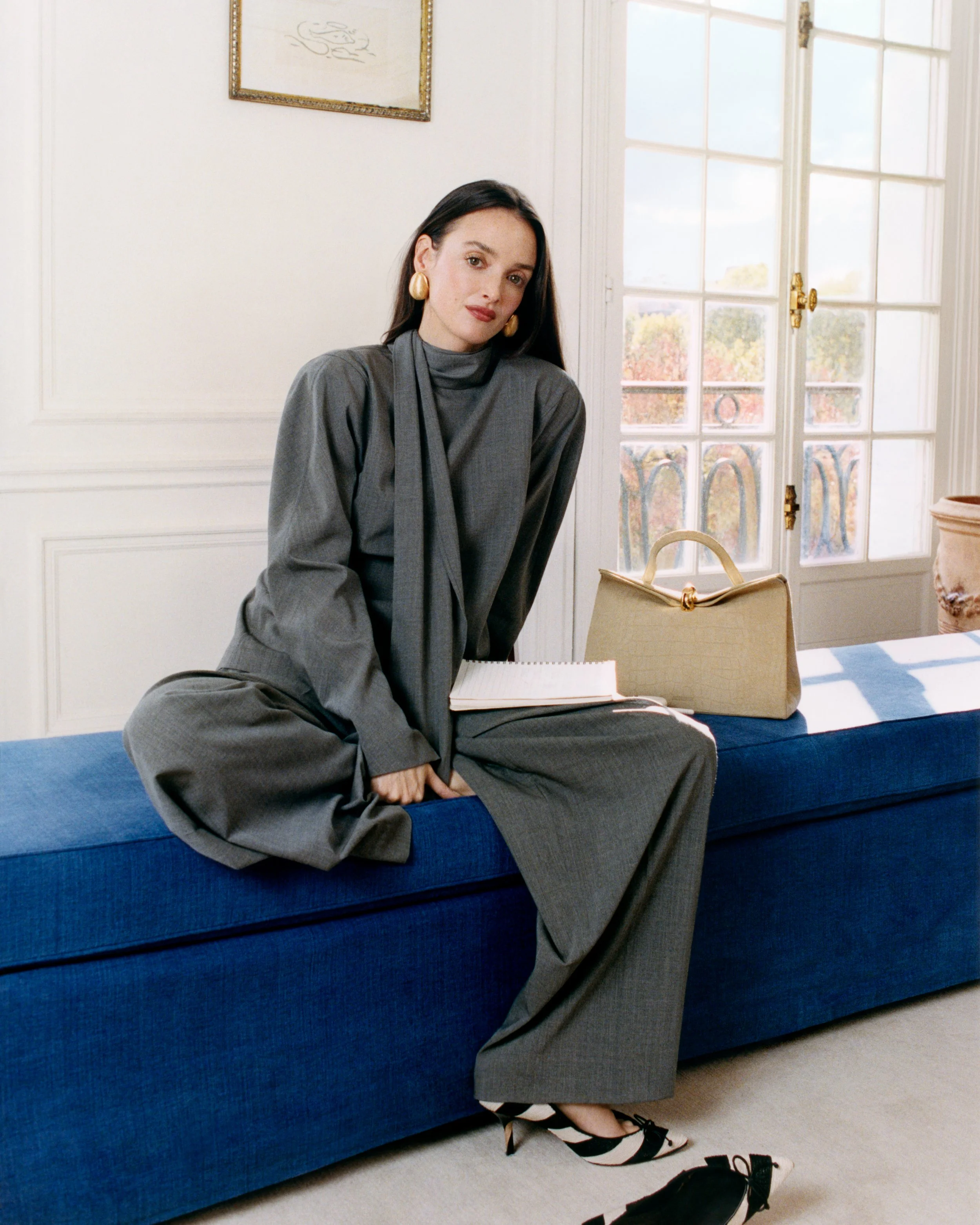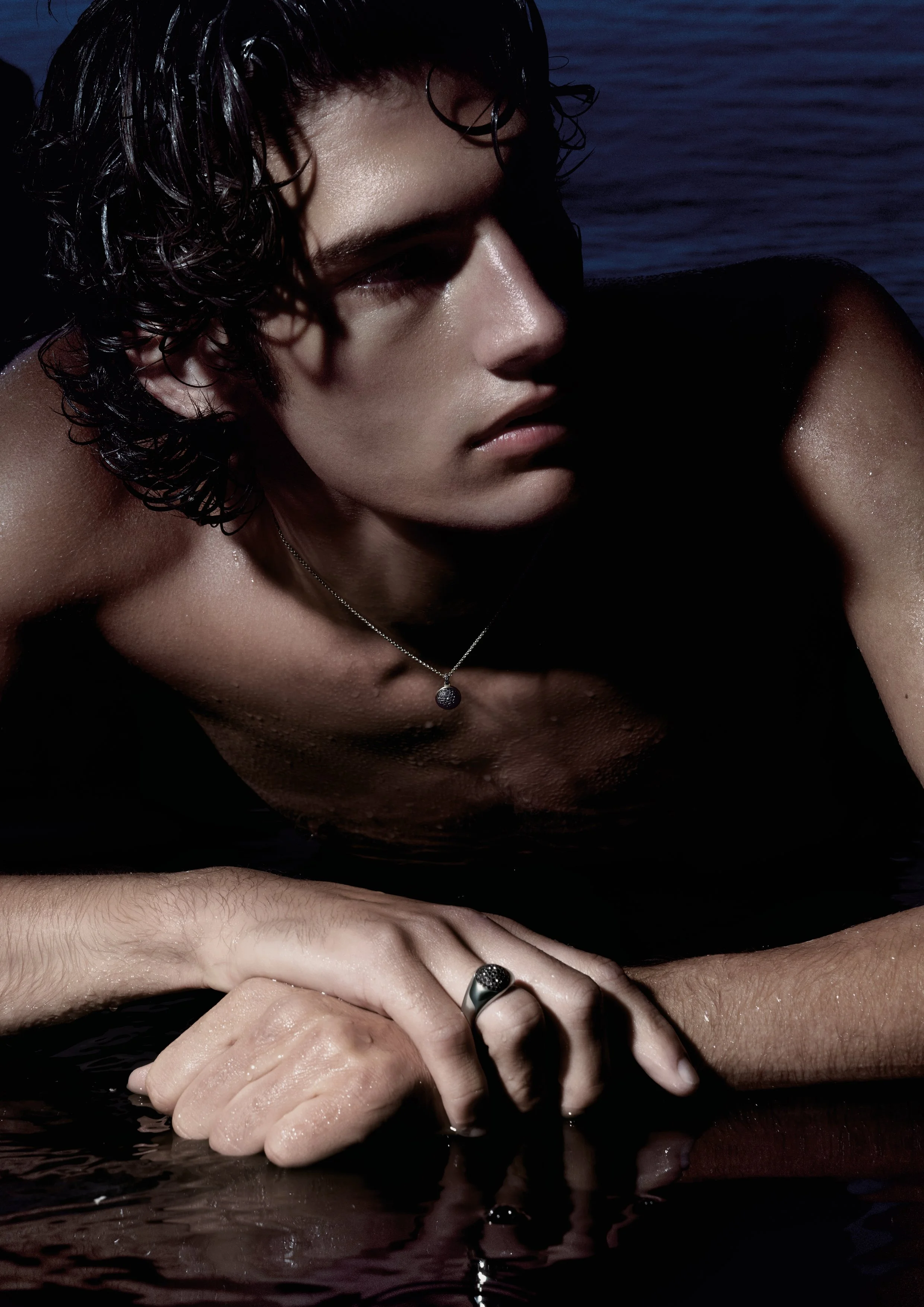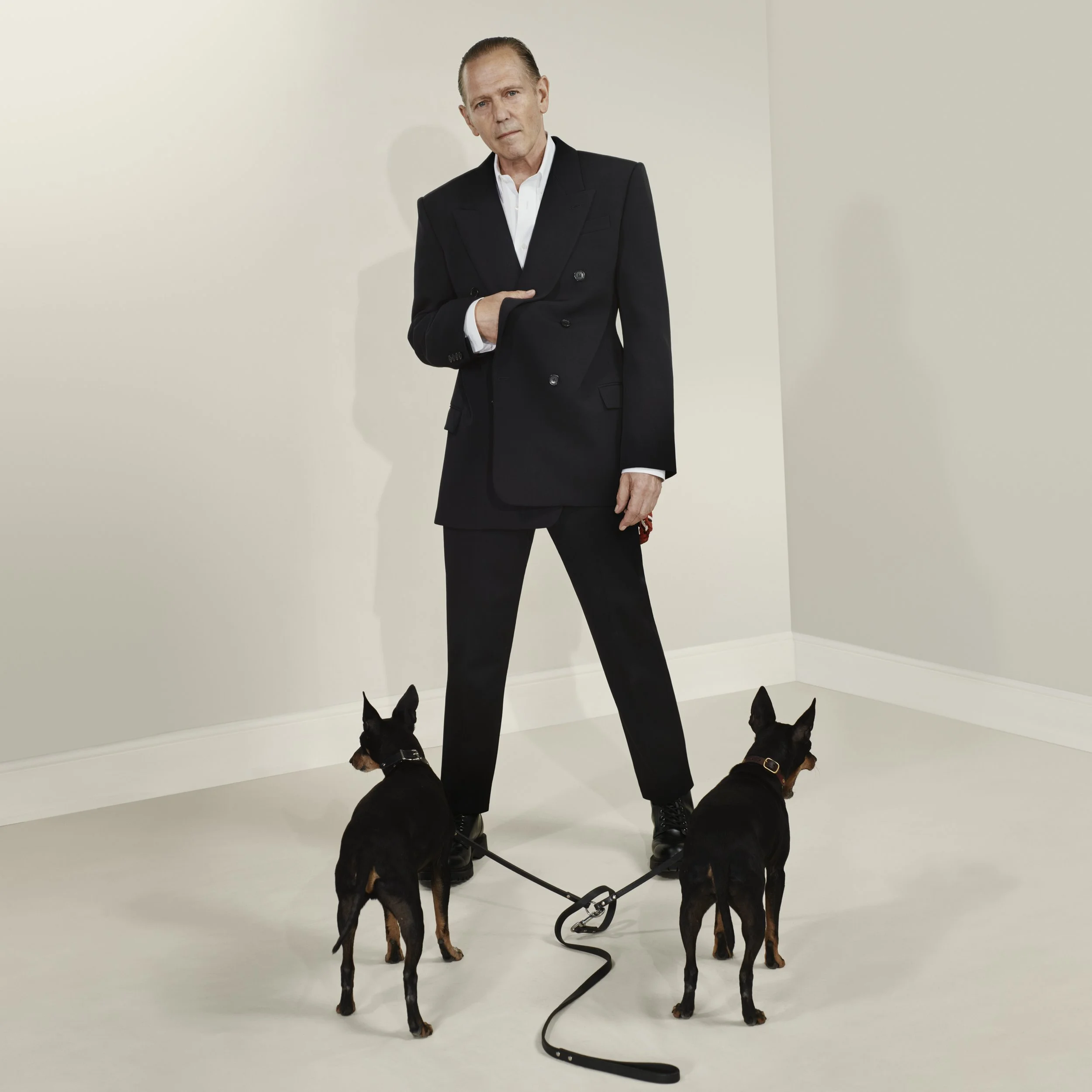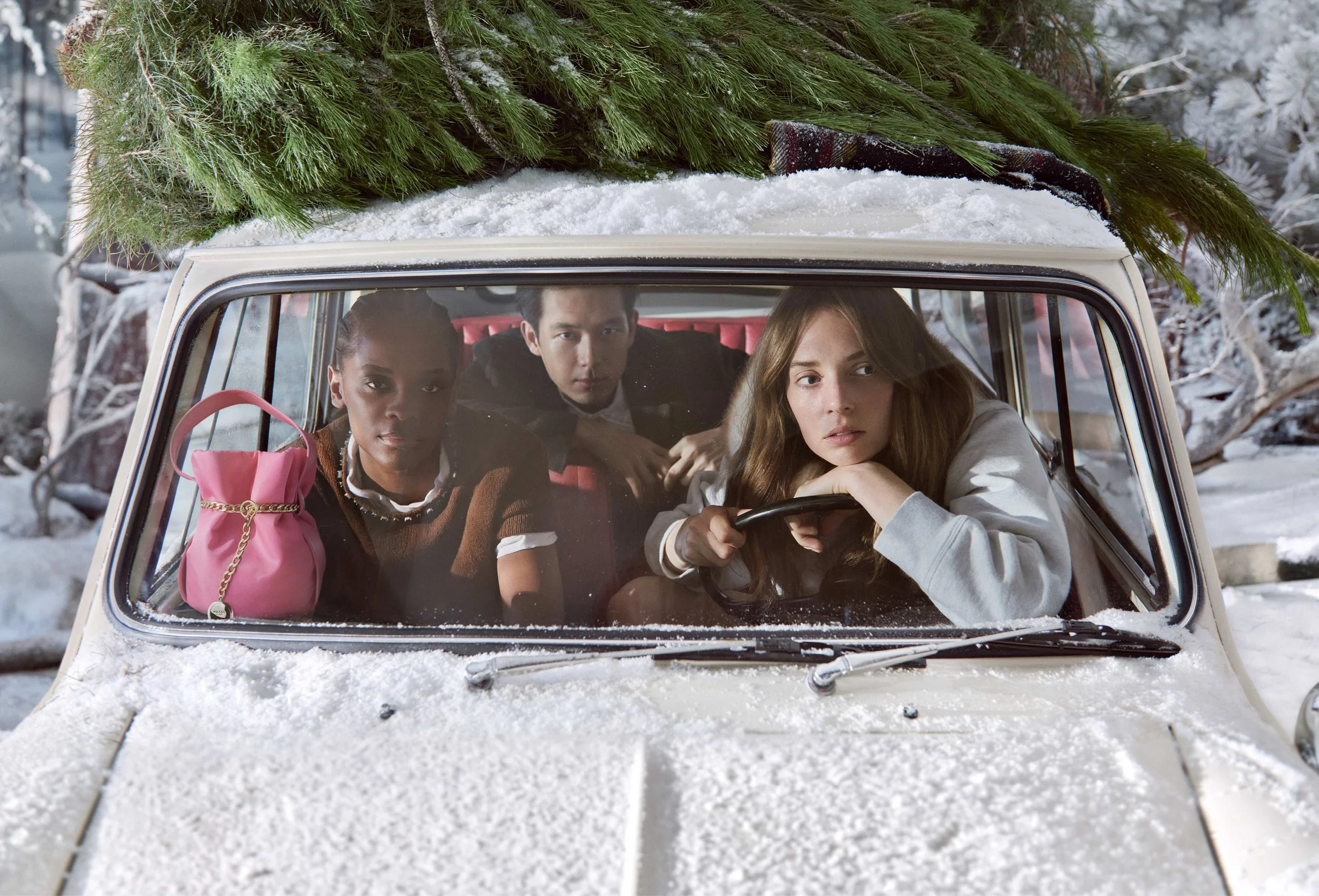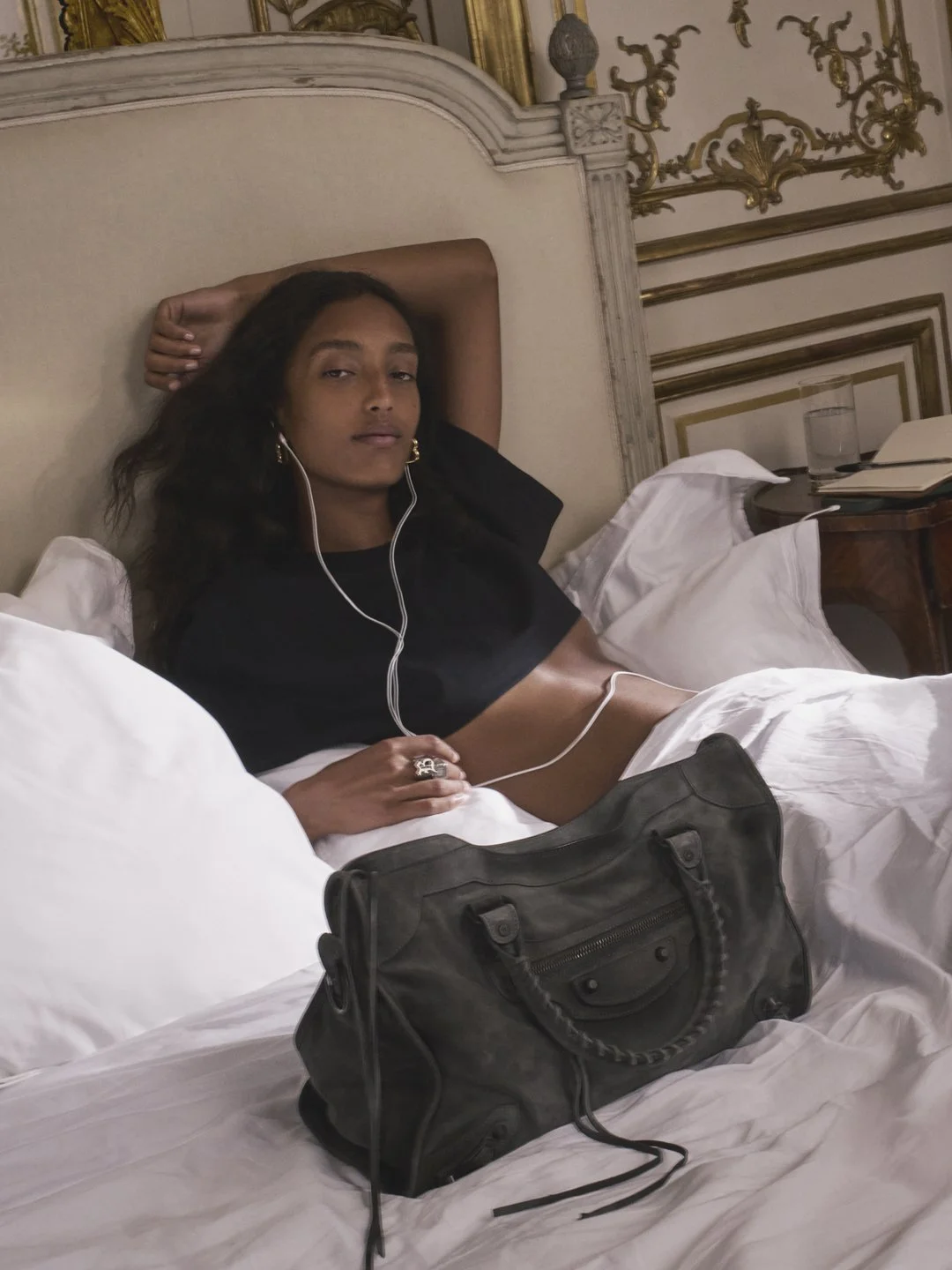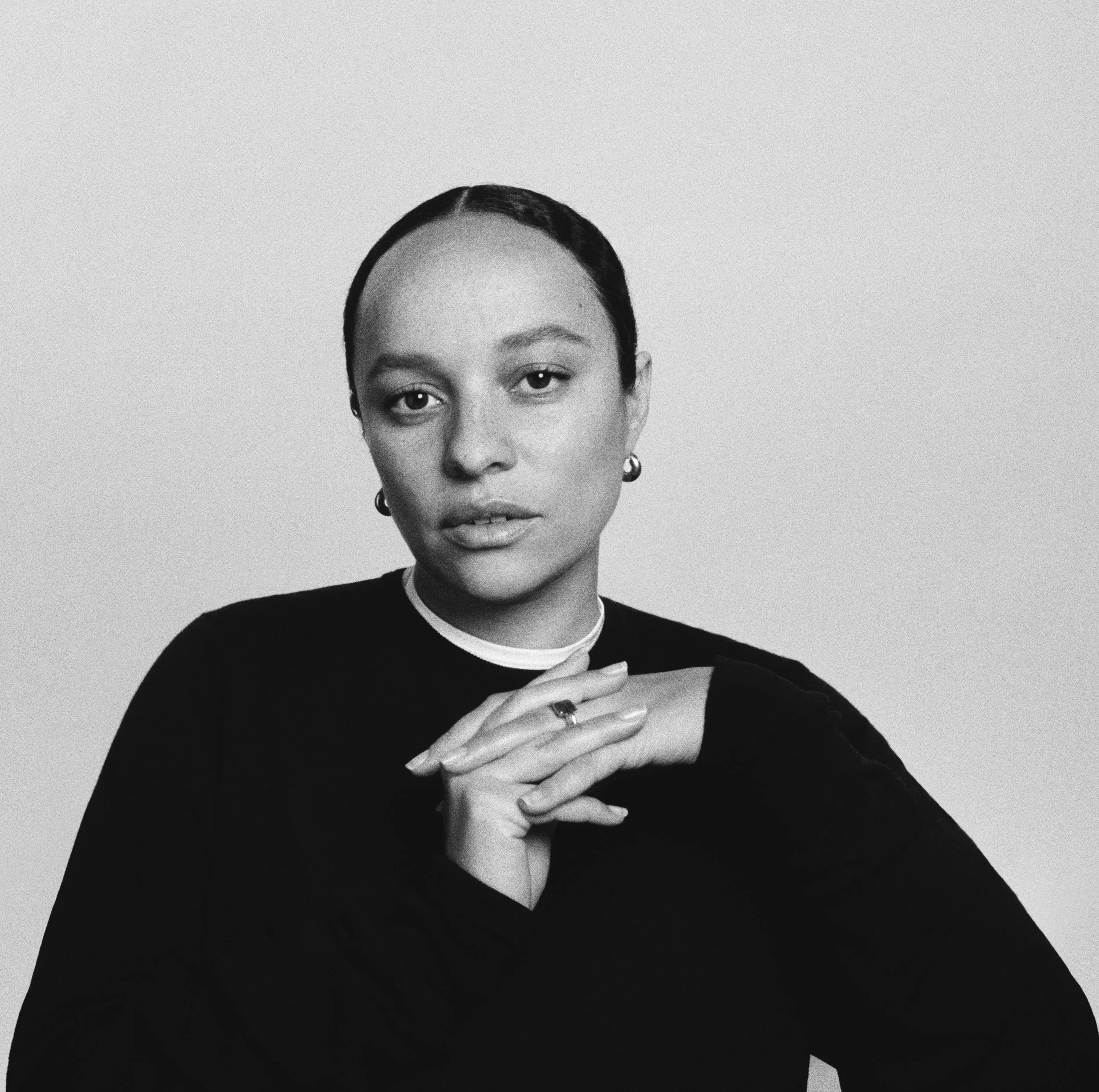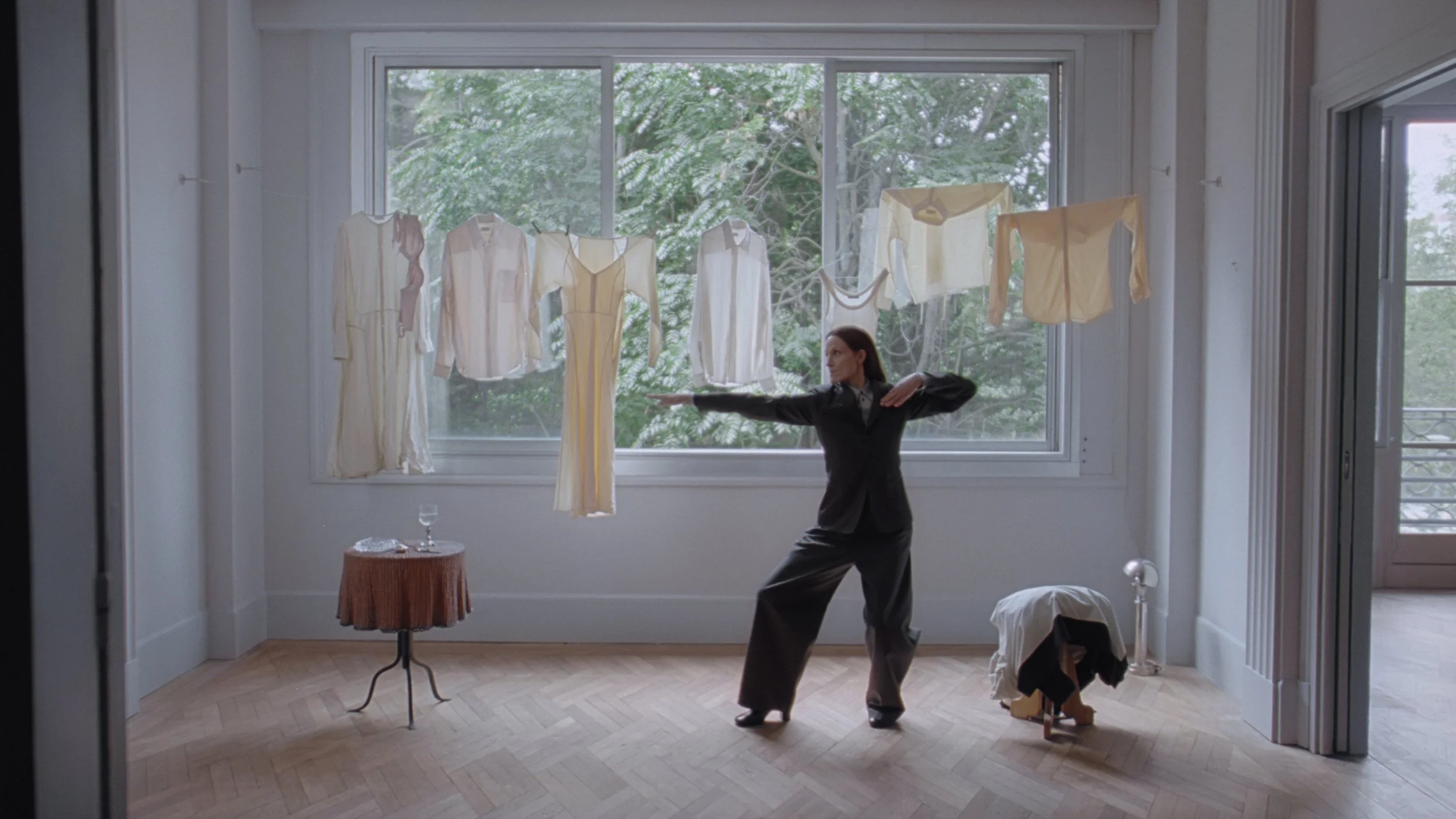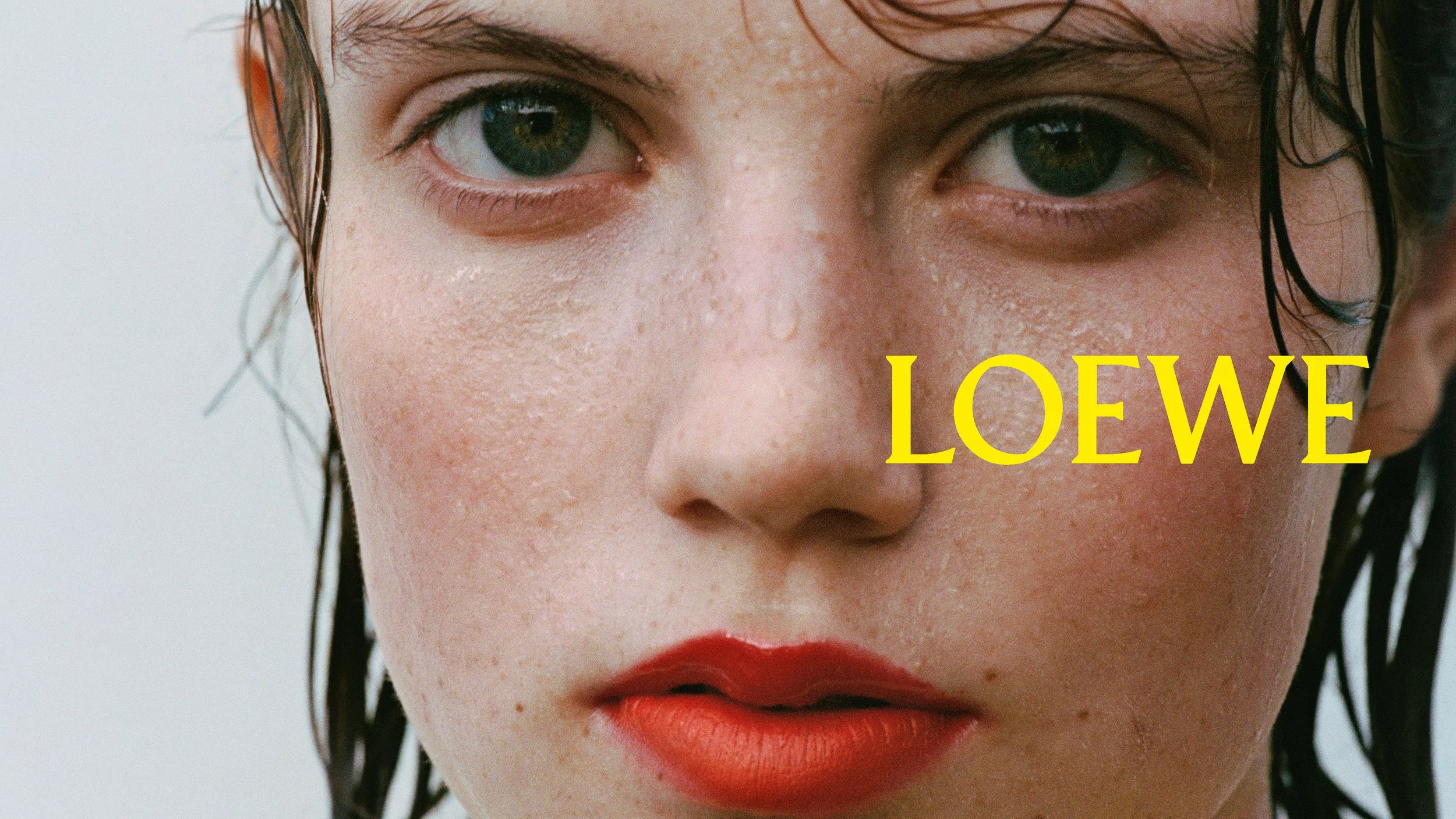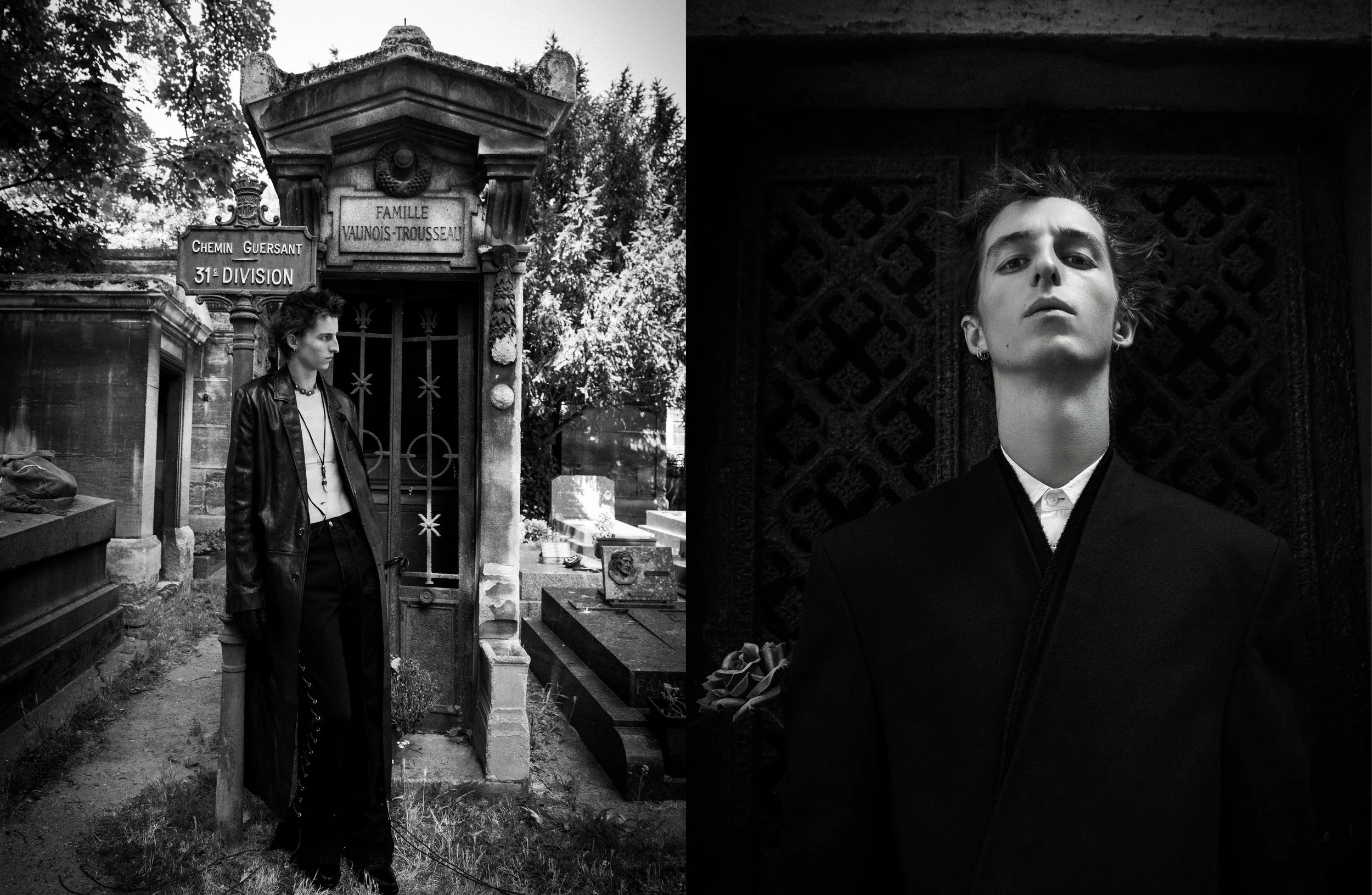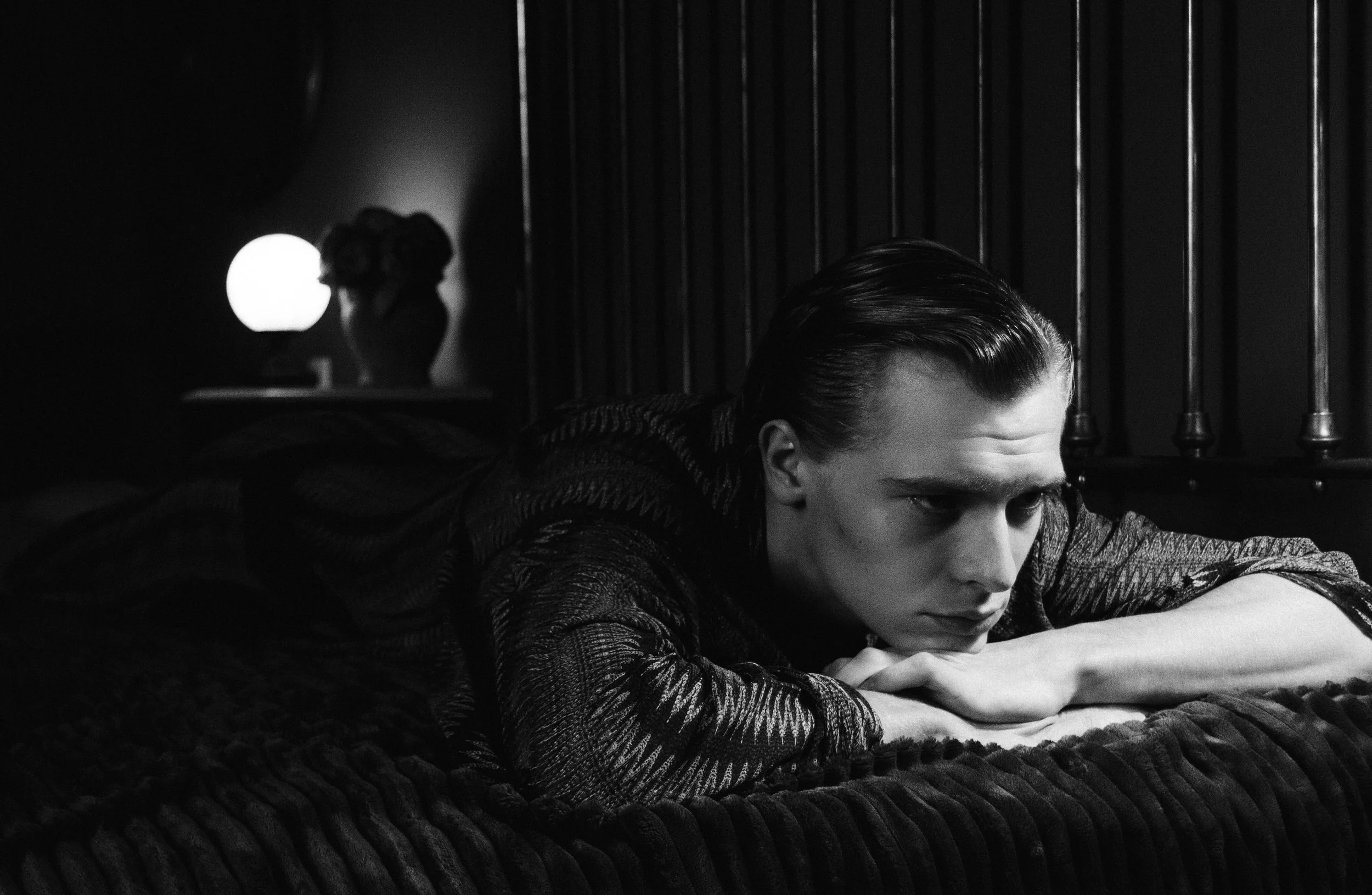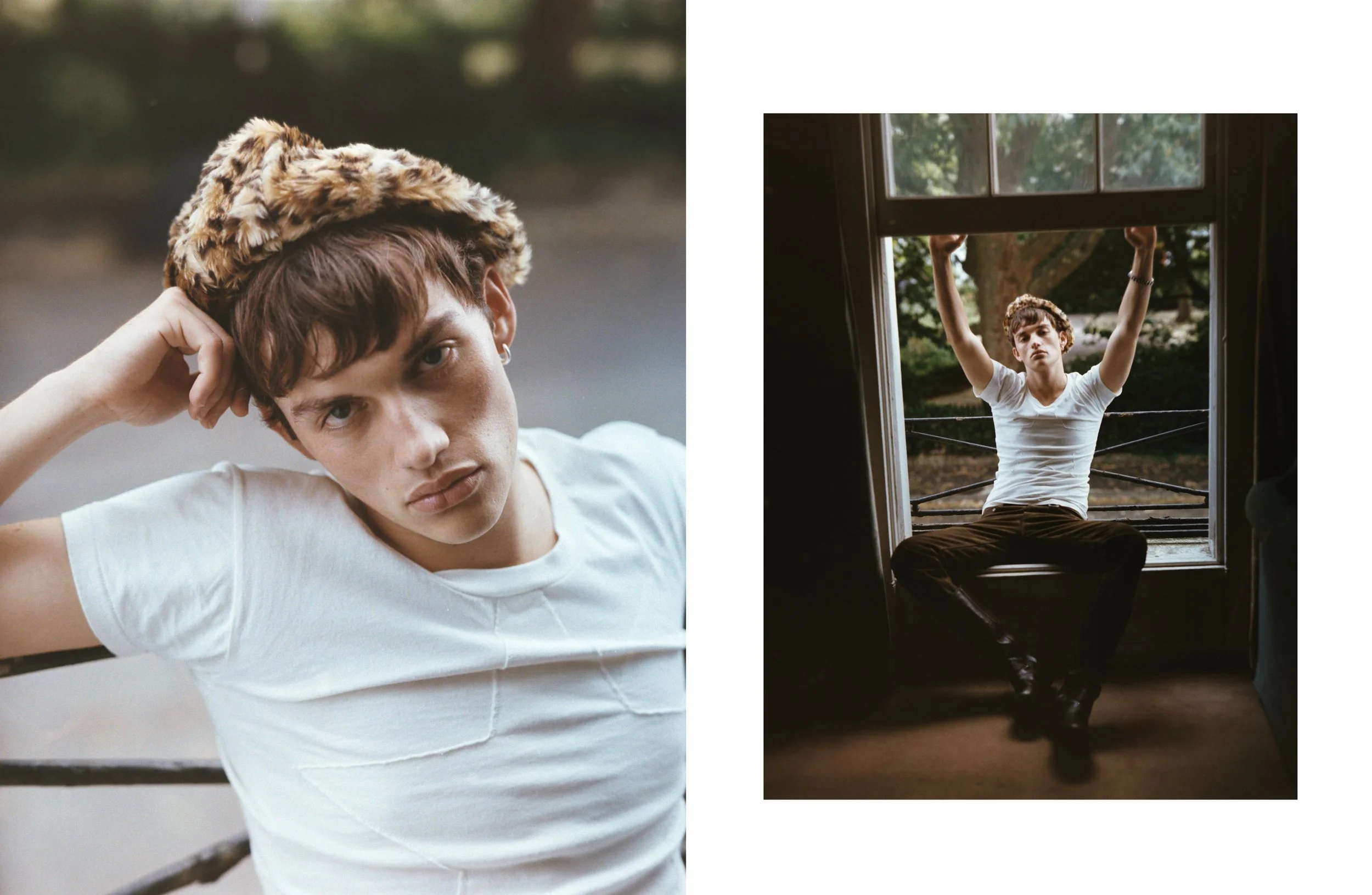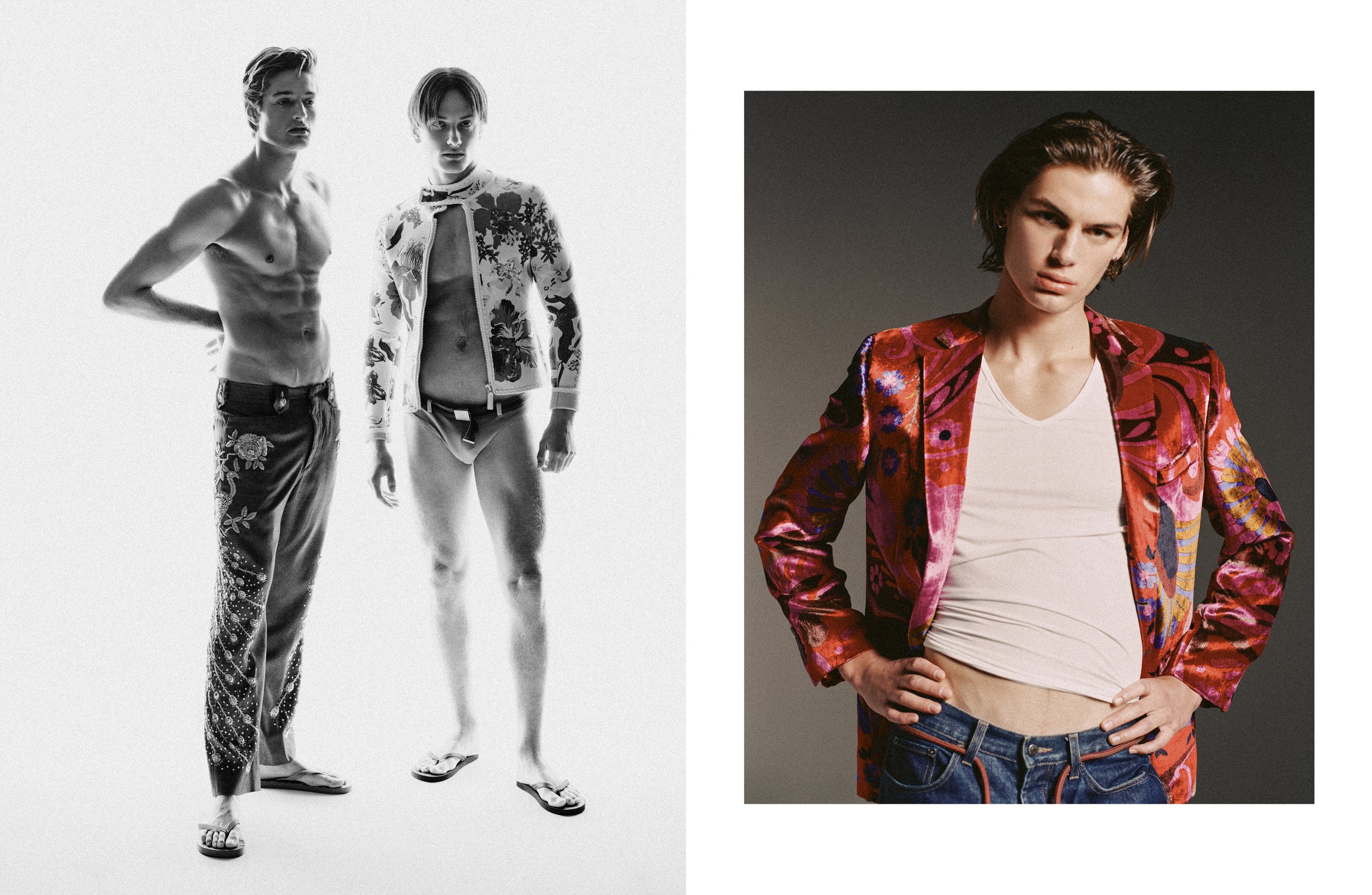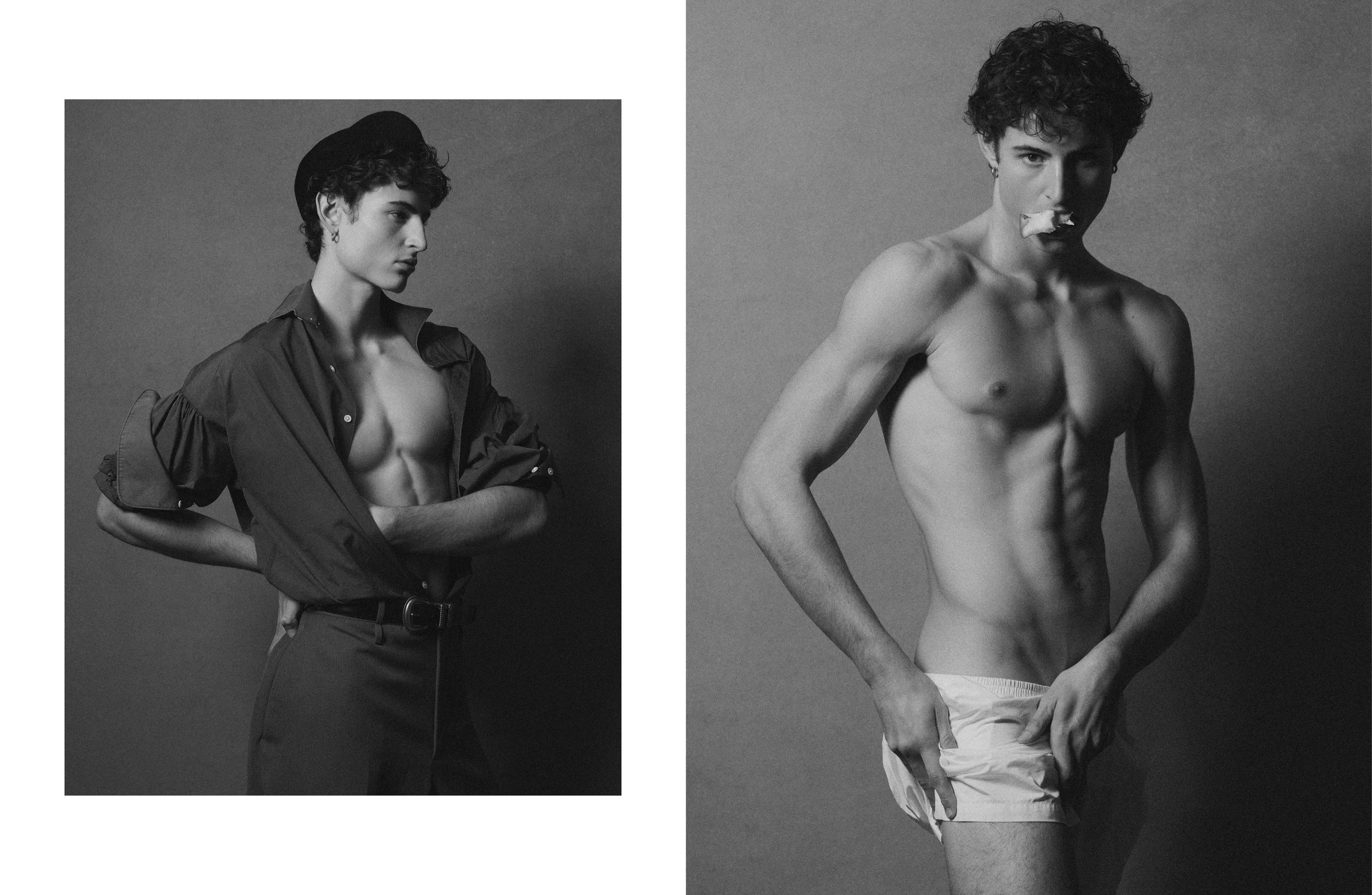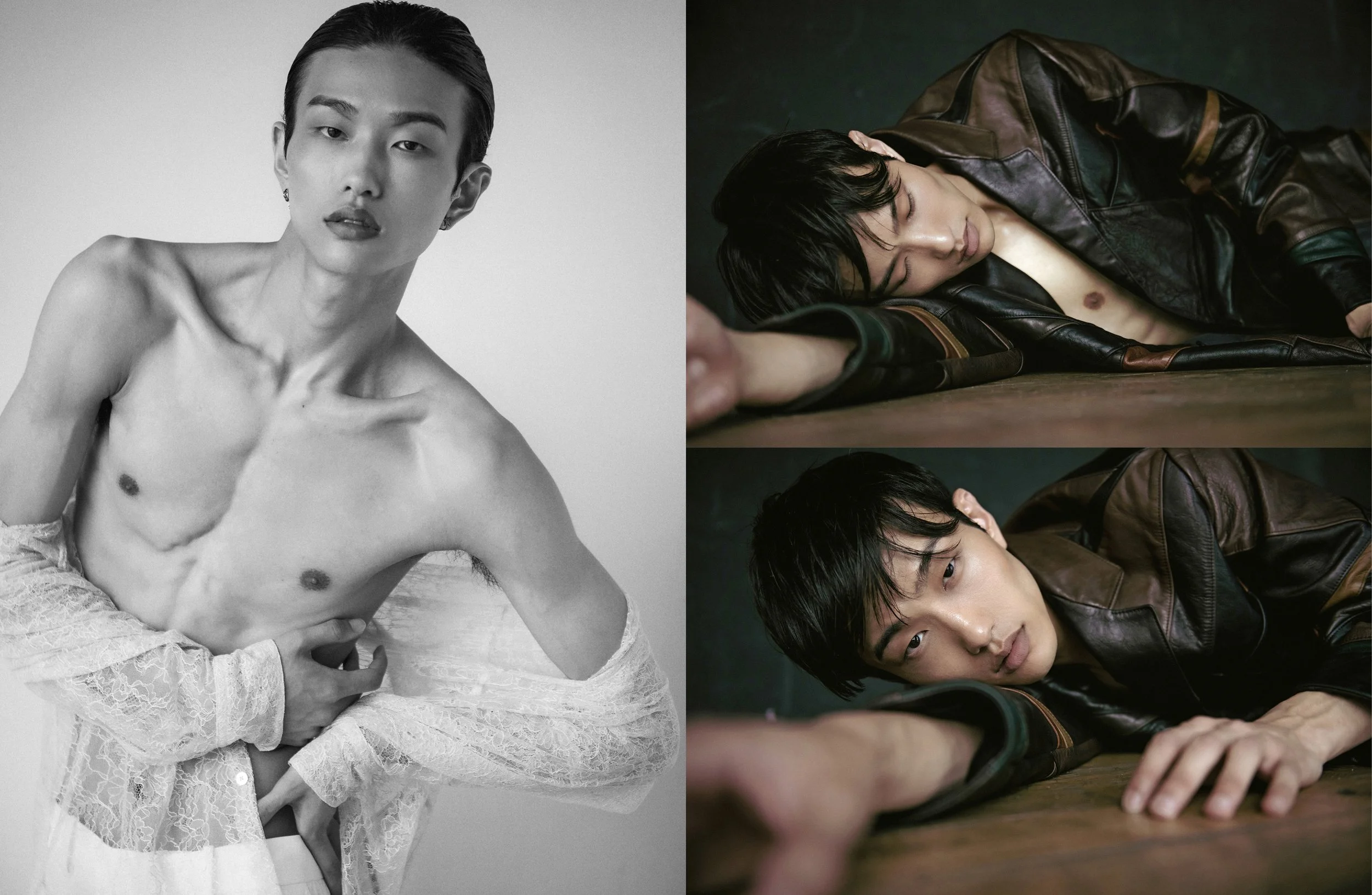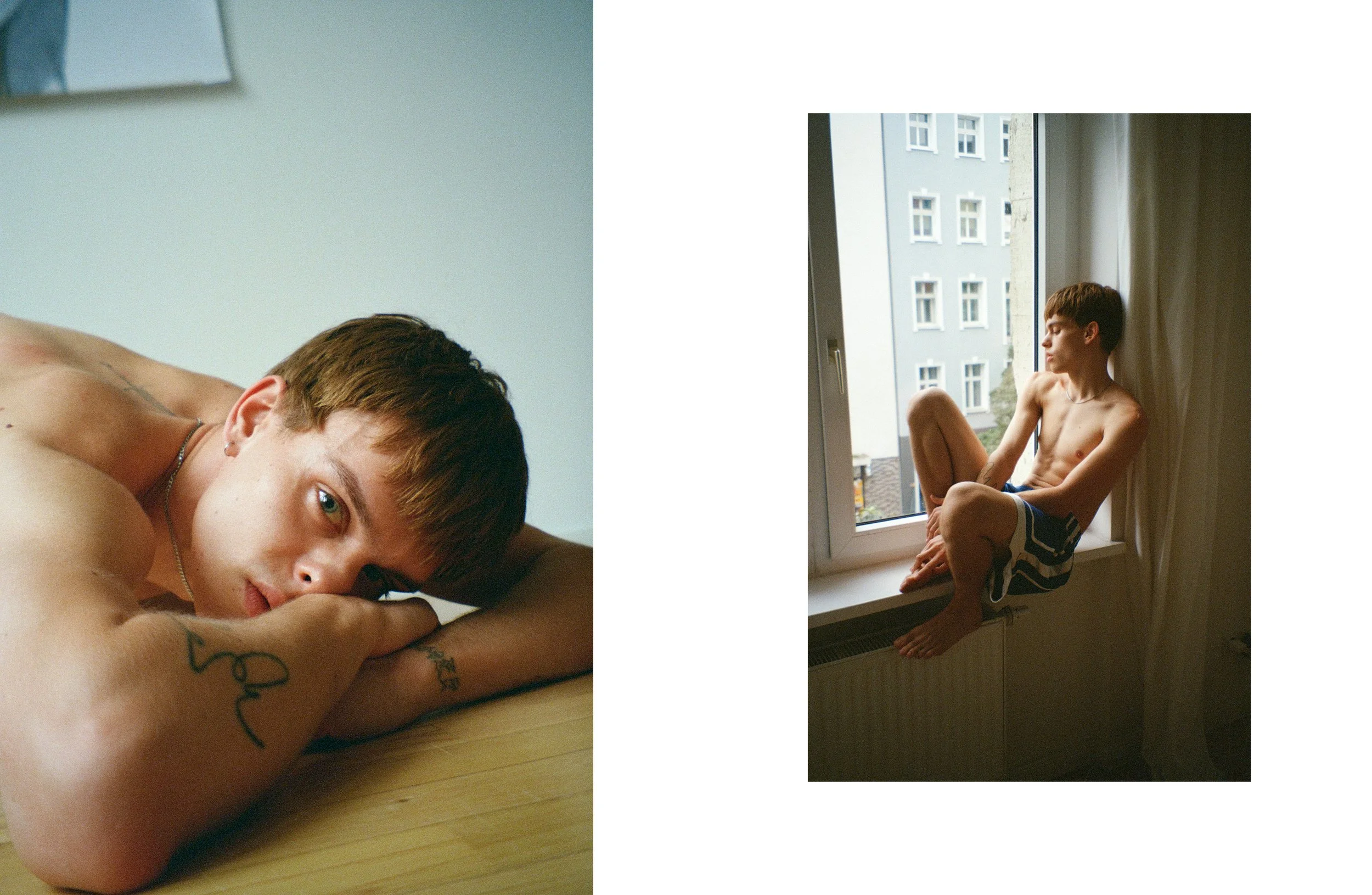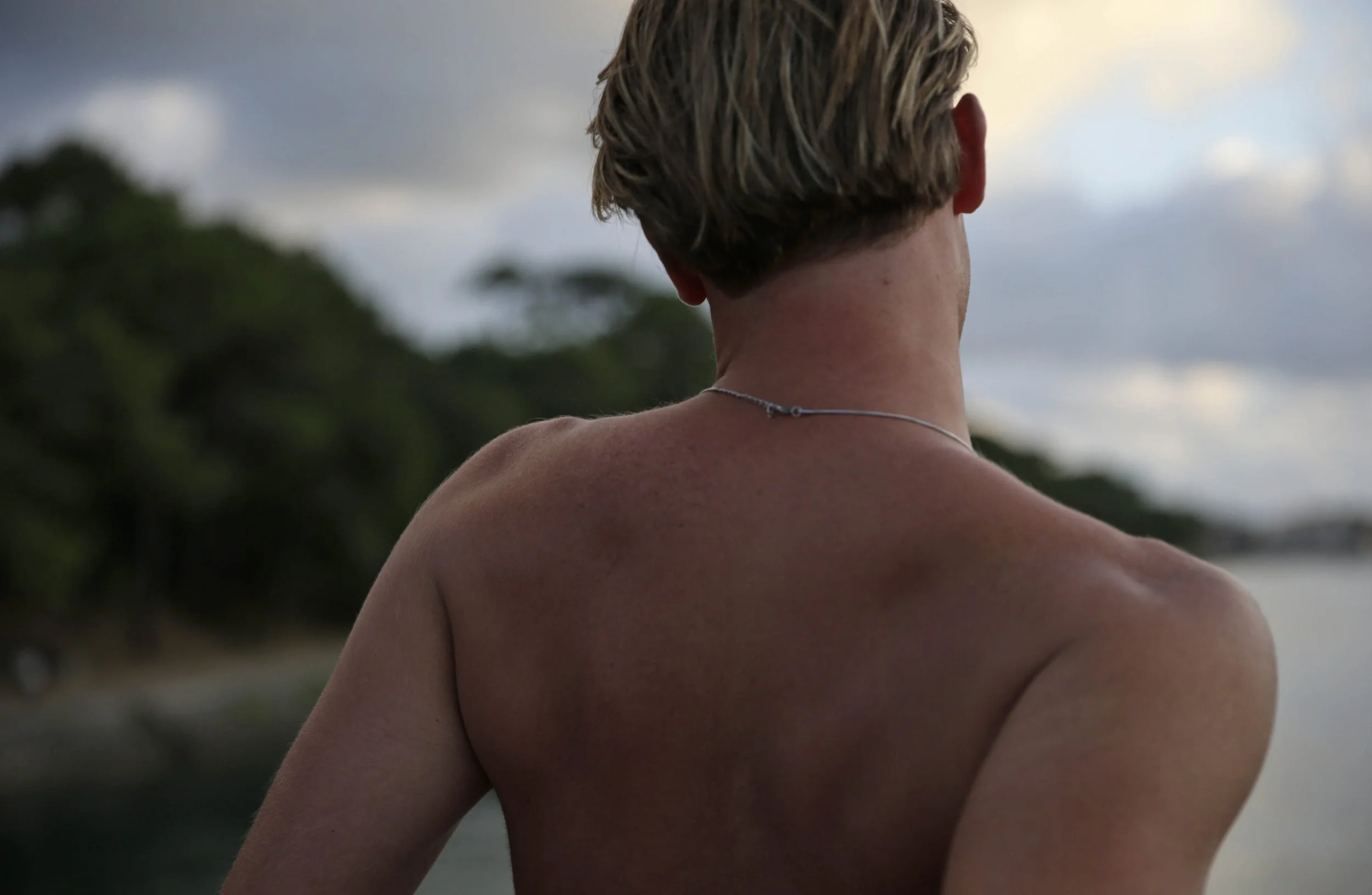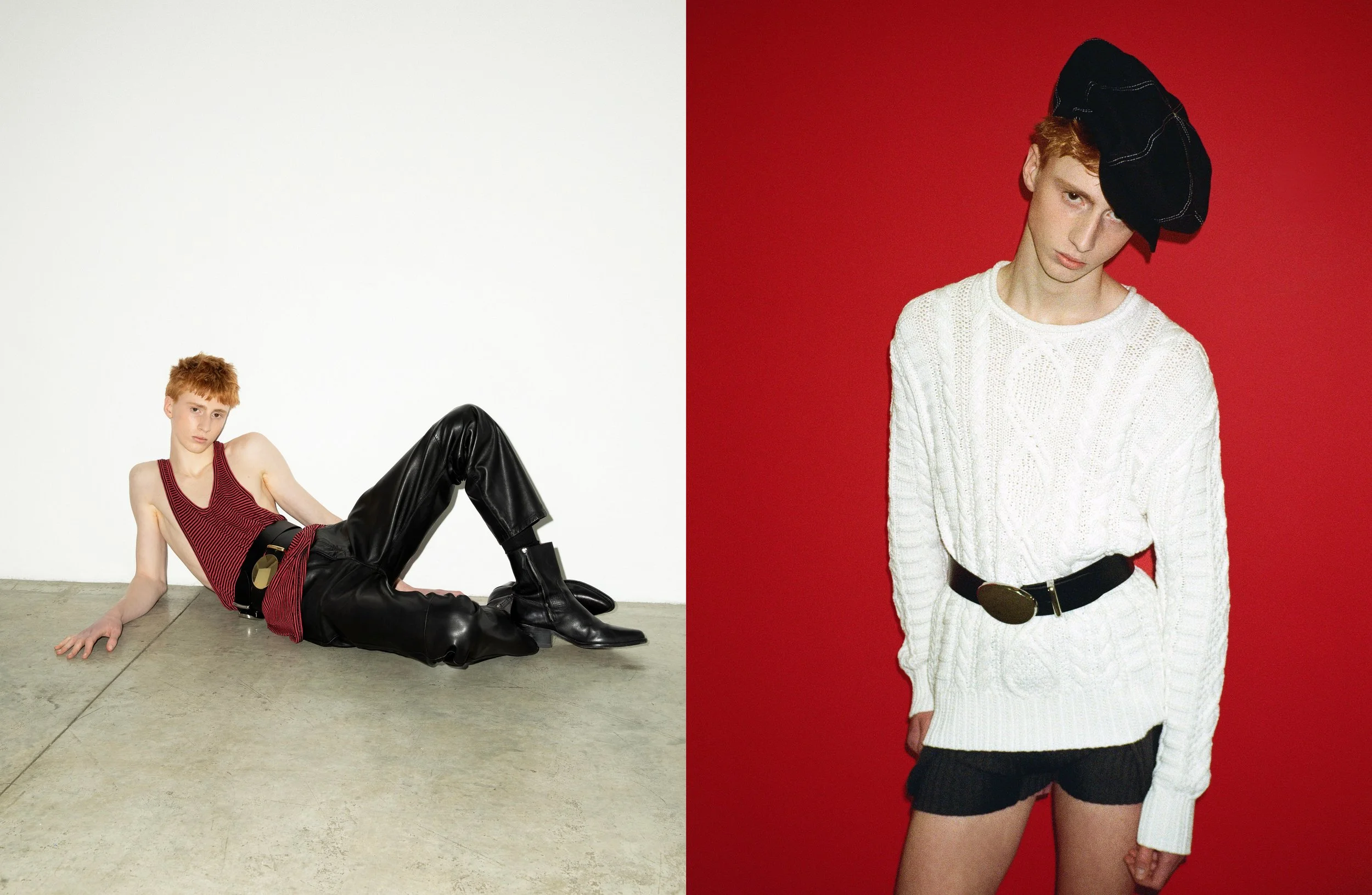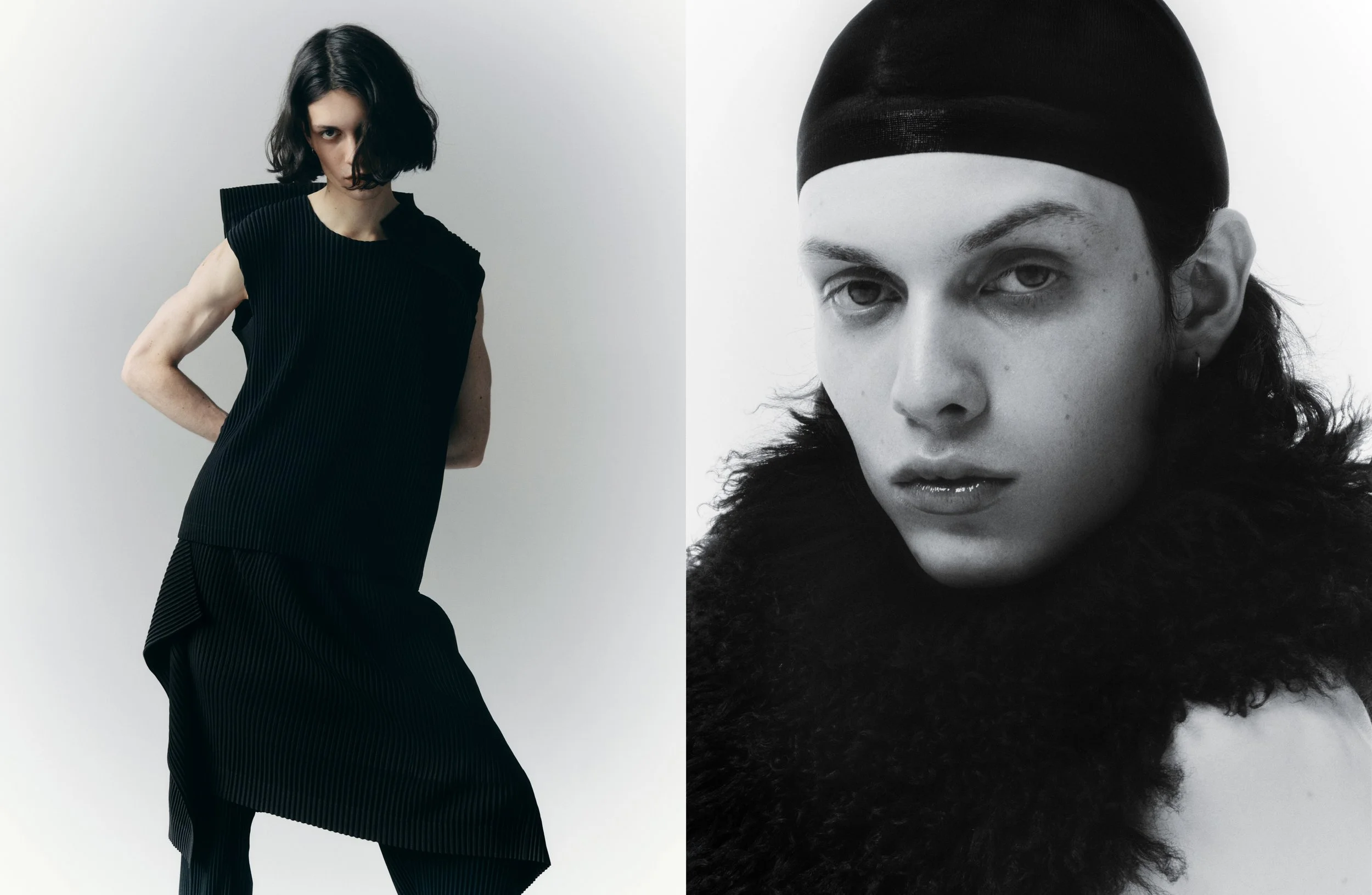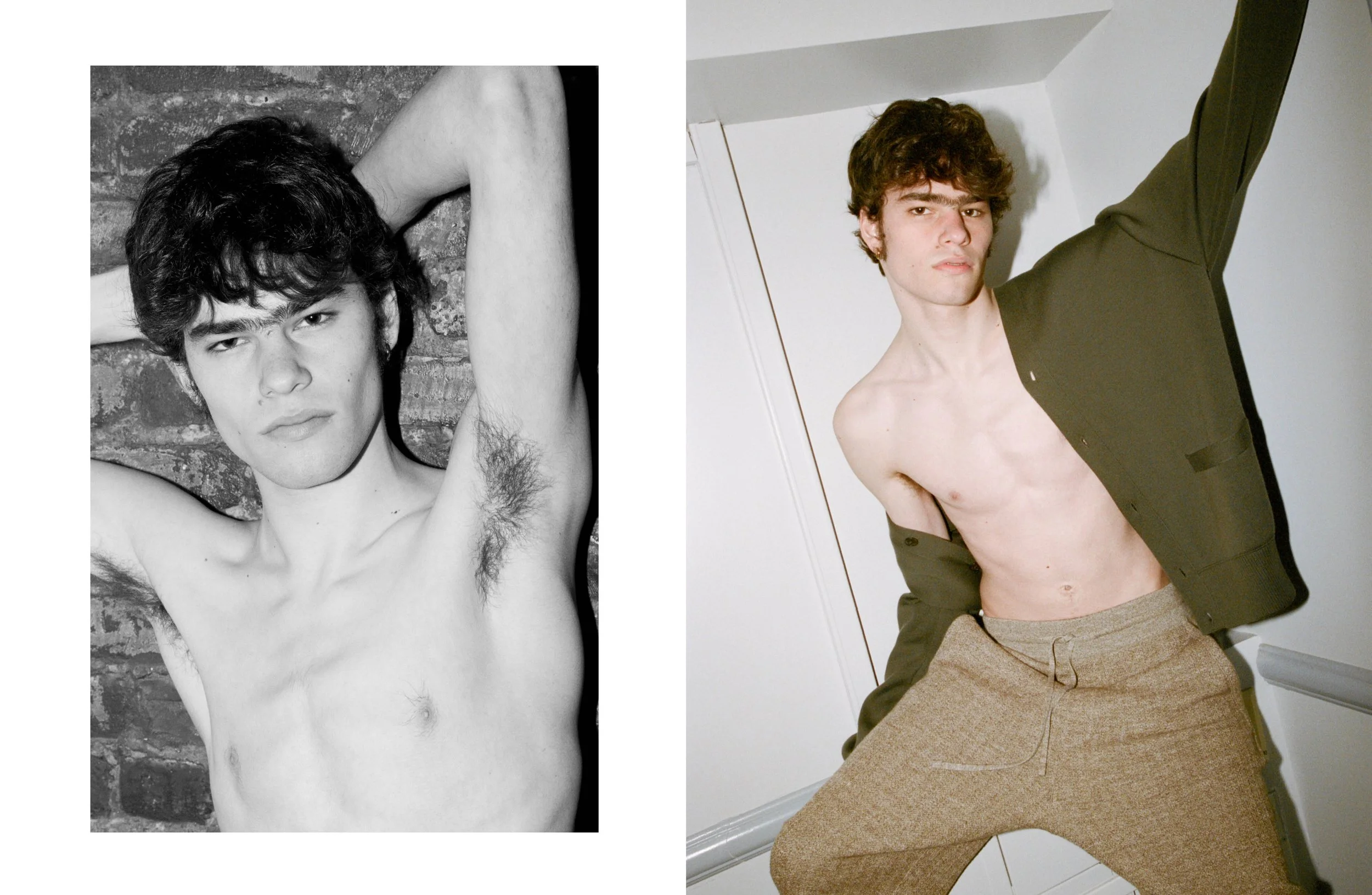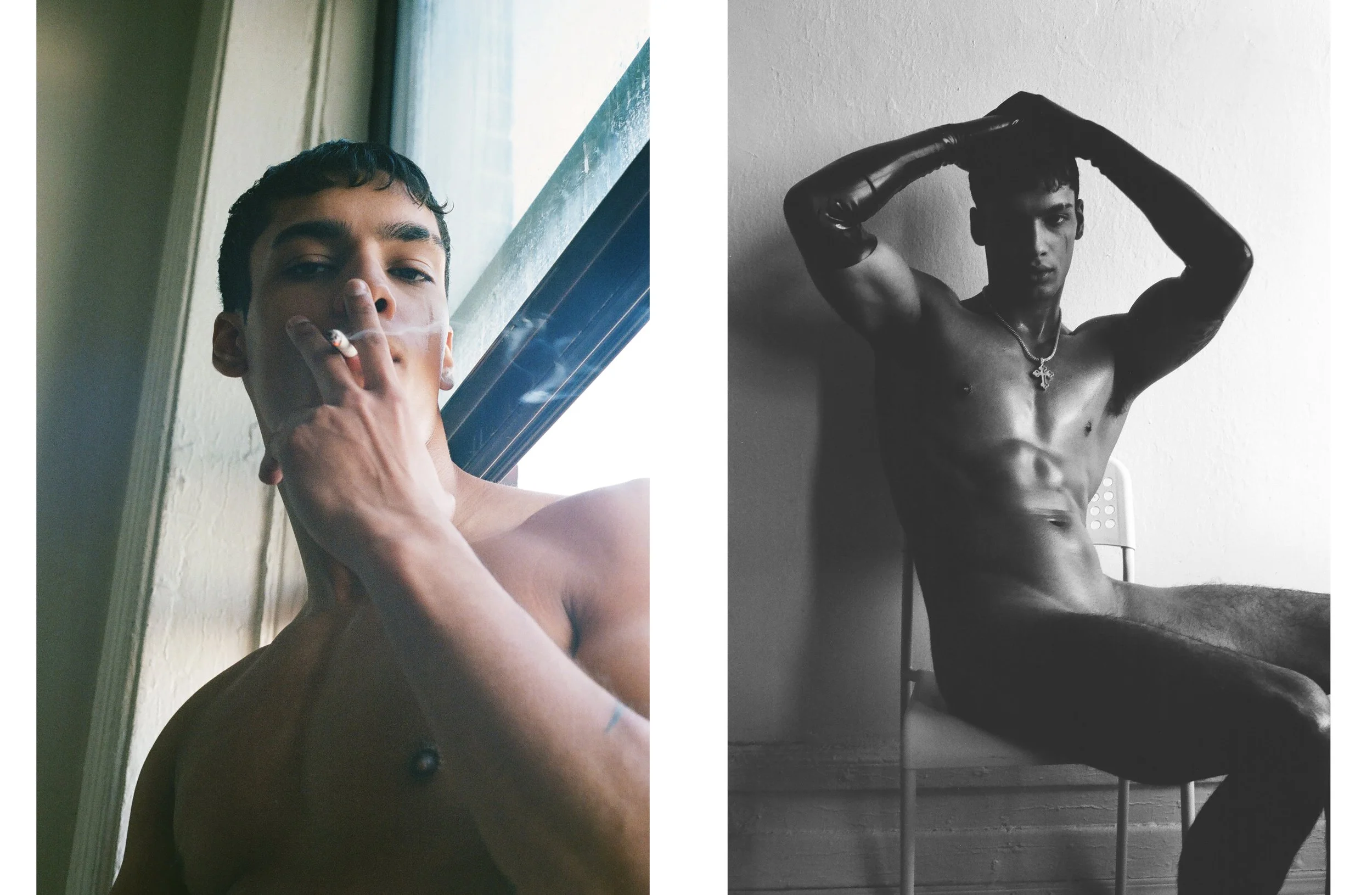Arnaud Valois takes his characters to heart, so playing the tumultuous role of Yves Saint Laurent in Disney+ Becoming Karl Lagerfeld was no simple feat. Months of preparation studying the tastes, passions and demons allowed Valois to embody another side of the iconic French designer. Whilst it took him some time to re-adapt to normal life outside of the YSL aura, the actor explains that he lost the taste for acting, having been so consumed by this insurmountable role. Now more than ever, he is ready again to take on new challenges, go back to the front, and explore other creative ventures, both locally and internationally. BTB sat down with the Valois to discuss his interpretation of YSL, as well as the complexities of fame, loneliness and sophrology.
Left Sweater Loewe
Right Tank top Prada, ring Messika
Hello Arnaud, how are you?
We just finished the press tour. It's been a really great marathon. It started with the Cannes Series Festival, where we presented the series as a world premiere. And then it just kept going. We sensed a lot of expectations for the series, so we gave it our all.
Fashion Week is on at the moment, do you have a busy schedule?
Yes! Right now, I'm on my way to the Louis Gabriel Nouchi show.
What made you want to become an actor? It's a complex job that involves cutting into a lot of different parts of yourself.
I think it was a desire to play people other than myself. There was also a narcissistic desire, I really enjoyed it straight away. The idea of being watched, of putting yourself on stage, of playing other characters. But also to fight shyness and to learn how to be with other people. Strangely enough, no matter how good you feel on stage, you're not always at ease with people in real life. That's the paradox of being an actor.
Left Tank top and pants Prada, ring Messika
First right Sweater Loewe, shirt and jeans The Frankie Shop, socks Jimmy Lion, loafers Isabel Marant
Second right Sweater Loewe, top and jeans Givenchy, socks Jimmy Lion
It hasn't always been easy. What made you want to continue?
Well, actually, I stopped. I started when I was 20, stopped when I was 26 and then started again when I was 27. What made me want to start again was when I was offered the role of Nathan in 120 Battements Par Minute. That really changed everything.
And it was a worldwide success. How did you feel at the time?
Very lucky, very surprised. We felt a certain responsibility for the story we were telling about these courageous people, most of whom are now dead, and I don't think we really expected the global impact it was going to have. We knew that there would be an audience for this film, but not to that extent.
I read that when you put aside your desire to be an actor, you explored a career as a sophrologist. What did sophrology teach you about acting?
I think it helps me with my acting because I'm more connected to my heart. But mostly, it helps me with the other moments like when I'm not shooting. It's easier for me to regain my energy, to find my centre, my focus in all of this. So that I don't get consumed by acting.
Full look Prada
How did you prepare for the role of Yves Saint Laurent? Both physically and mentally?
I prepared by immersing myself completely in it. In all the biographies, extracts and archives. There was Raphaëlle Bacqué's book... well, it was about Karl but it was also about that time period. It was fascinating. I watched a lot of the films he liked to watch, and the music he liked to listen to. And, of course, his work: his fashion shows. I tried not to immerse myself in the work of Pierre Niney and Gaspard Ulliel, who were remarkable and I'd seen the films when they came out, but I tried not to get hung up on that. To try and find something else. Maybe even put some of myself into Monsieur Saint Laurent to make it stand out even more and offer something different.
Left Sweater The Ace Club
Right Gilet Brunello Cucinelli, pant AlexanderMCQueen, ring Boucheron
In the series, you play another face of Yves Saint Laurent, different from the one we've seen in cinematic biopics. How do you feel about the reception of this Saint Laurent?
I was very scared when I was approached for the role, and asked myself what I was going to offer that was new. And then when I read the script, I had access to the first three episodes and I understood straight away that it was going to be something completely different. What the series wanted to show about Saint Laurent, and also about Karl, was really to show the part of humanity in them with all its complexity of being human and not just them as great fashion icons, geniuses and so on. To be in something much closer to them, closer to their torments, to what makes them tick. From the get-go, I felt that there was something powerful to tell. But even so, the fact that I was following in the footsteps of such great performances by such great actors put a lot of pressure on me. And for the first time, I worked with a coach, who was my teacher at Cours Florent. I had the intuition that he was the best person to prepare me for this because I didn't know how to tackle such a complex character, so far removed from myself, on my own. I think I've done roles... Not necessarily characters that resembled me but that I understood very well. We really got to the heart of the scenes to bring out what he really wanted to say at the time. We also worked with Pascaline Chavanne, the costume designer, who was another very important element in finding the gestures and the postures. All the costumes were made to measure and I'd never had the chance to do that before, so that was another very important part. I never experienced a character like that, with such collegial effort between the costumes, hair by Sébastien Quinet and make-up by Valerie Chapelle, the chief make-up artist. All that was really important for me in finding my Saint Laurent and really digging into it.
Left and right Full looks Dior Men
Were you interested in fashion before starring in the series?
I've always loved fashion. All that work for a 20-minute show. But I know that behind the scenes is not always a perfect world, far from it. There's something fascinating in the representation that it gives, and a costume, a garment, can also help me in promoting, obviously in a role, but even in my job as an actor, it gives me power, strength. For me, it's a creative work that can be likened to a certain form of play.
There's a line in the series where Karl says, "Paris is a constant lesson in humility." I read that you're from Lyon, how did you feel about Paris when you first arrived here?
I think for him it's special because he's German and at that time, being German in Paris in the ‘50s must have been quite a thing. For me, Paris was more like a breath of fresh air, everything was possible, everything became possible, everything became great. The anonymity that it gave me was very galvanising at the start. I was dreaming of leaving my city, so it was different.
Left Top and pants Lacoste, glasses Miu Miu
Right Top Lacoste, pants Alexander McQueen, Ring Boucheron, bag Brunello Cucinelli
There's another moment when Yves is at a party surrounded by friends, admirers and collaborators, and he throws himself at Karl and asks to let him “buy” Jacques, this humiliating scene where he pleads his misfortune, his loneliness… What does it represent to you?
I didn't experience it as a humiliating moment, I really experienced it as a moment of despair, of reaching out... It's a real pivot for the character who's sinking into something lost. They are all in a cage, a golden cage of course, but in a cage. And this love that Jacques refuses him is unbearable for him. He dreams of leaving. It's a great moment of sadness... And then he ends up in a psychiatric hospital.
It's interesting how this series highlights loneliness, and perhaps gives us another dimension on fame and adulation.
It refers to a celebrity in power. I think...I saw Diam's documentary Salam where she explained that being at the very top is cold, lonely, there are wolves. I'm not really convinced that being at the top of the pyramid makes you happy. And I'm not sure that the human nervous and cerebral system is designed for it either. Extreme fame, extreme power, I don't think it's possible to resist the temptations of that.
What kind of projects would you like to work on next?
I actually needed a long time to get out of this role. To even want to act again. It was so powerful. It was so incredible that it took me a good six months and now I've been reconsidering the offers. There are other things in the pipeline. I've been concentrating on myself and then on my personal artistic work. Right now, I'm working on a second short film as a director that I'm going to make this autumn. That's going to come back, but it took me a long time to even want to read a script. I found everything bland compared to what I'd been through during the almost 7 months between shooting and preparation. Then there was this experience with Dan Levy's Good Grief, which came out in January on Netflix, which also opened doors.
Left and right Tank top Prada
So now you're keen to explore more roles internationally?
Yeah, it was a really great experience making Dan's film in English, I really liked the way he worked, very professional, very focused on the game. We have a bit more of a troupe approach in France, even on a film or series shoot we have a much more familial approach. I also liked the very professional international side. I don’t have expectations – there are things that are coming up and I welcome that with a lot of pleasure and a lot of gratitude.
Interview by Gabrielle Valda Colas
Photography by Emmanuel Giraud
Art Direction by Flavie Gonin
Fashion by Thomas Turian
Grooming by Ludovic Bordas
Set Design by Frédérick Assez
Photographer’s assistant Pierre Drouin
